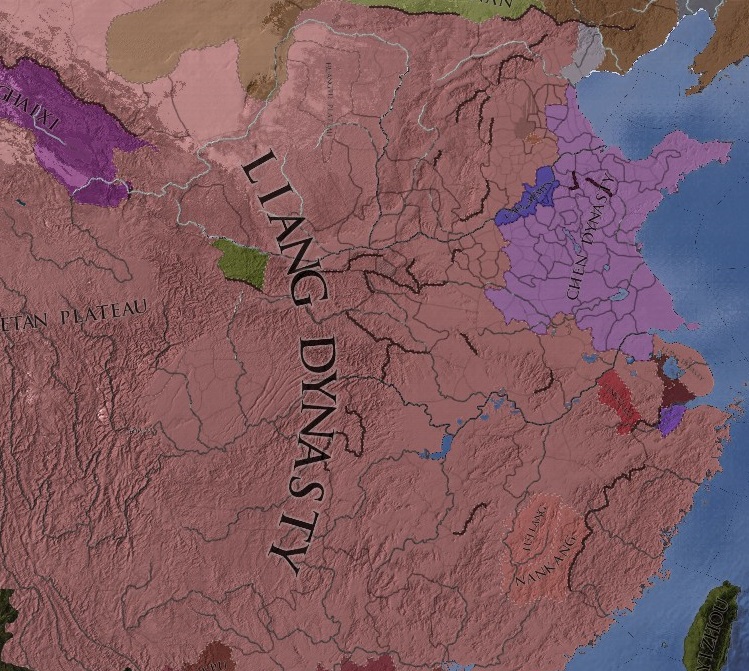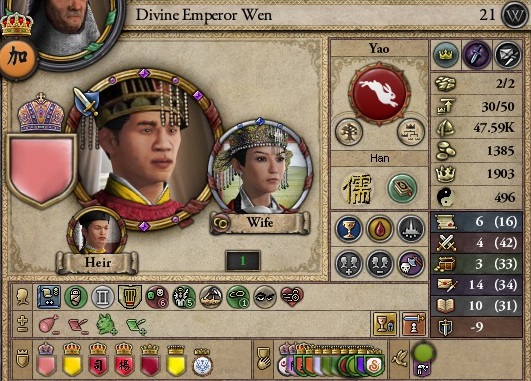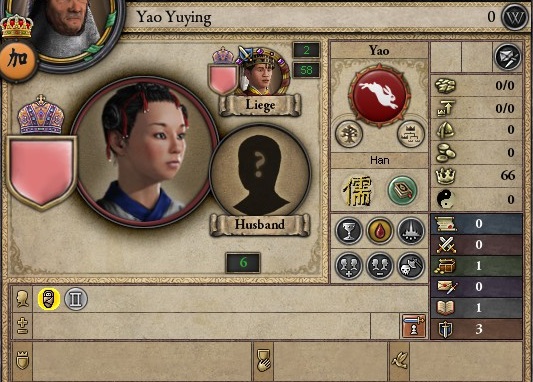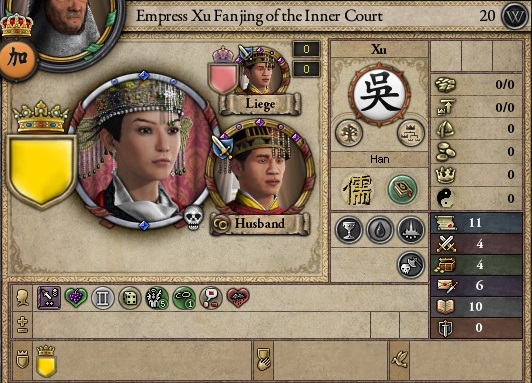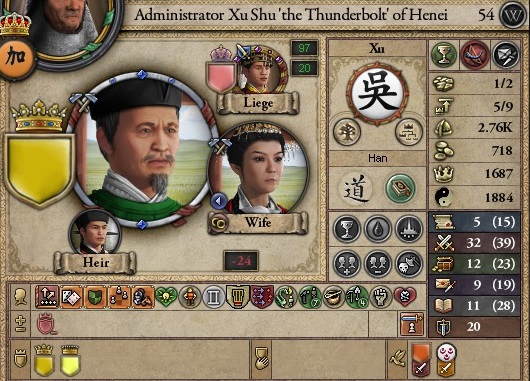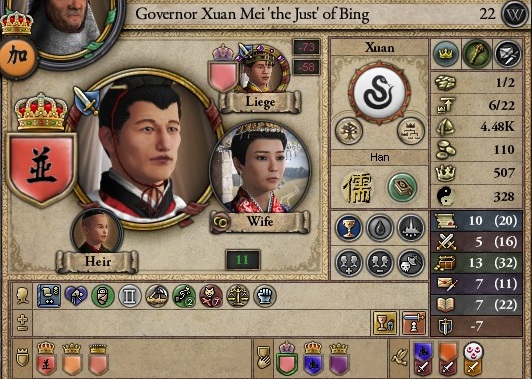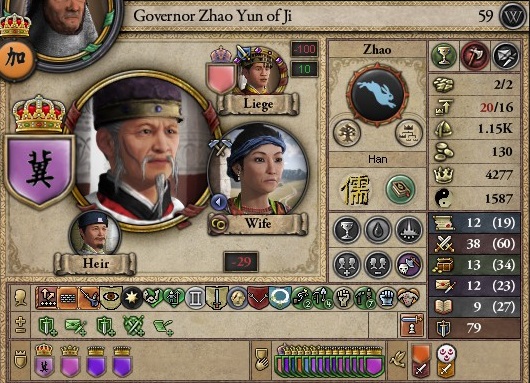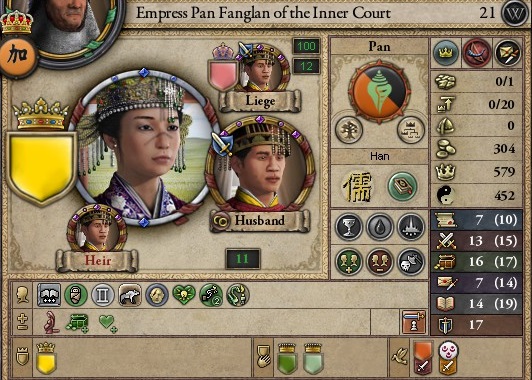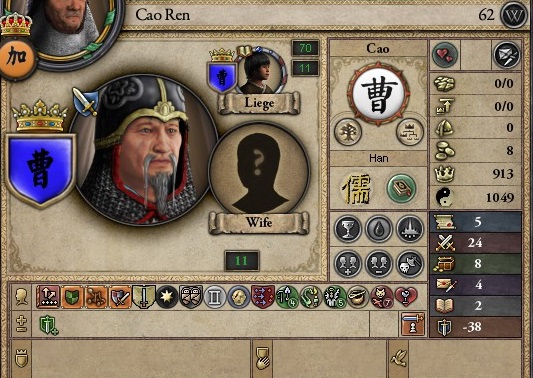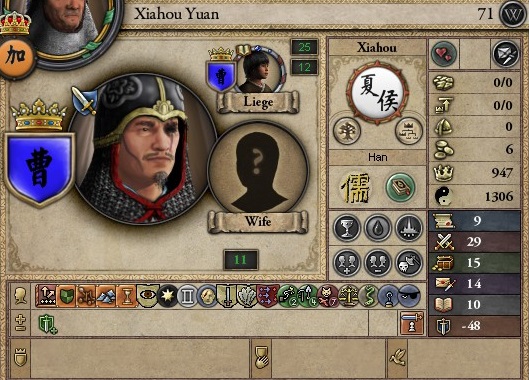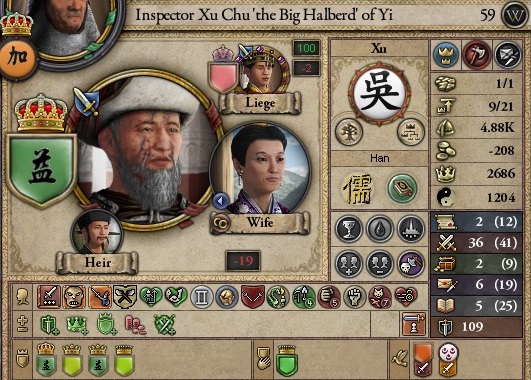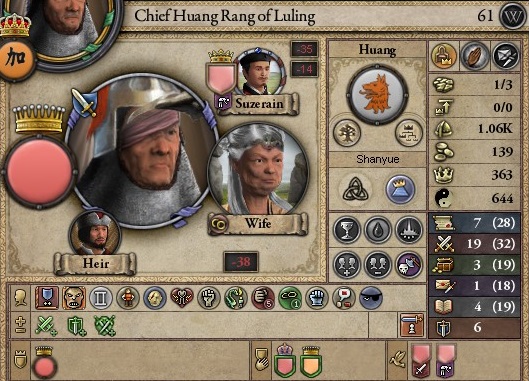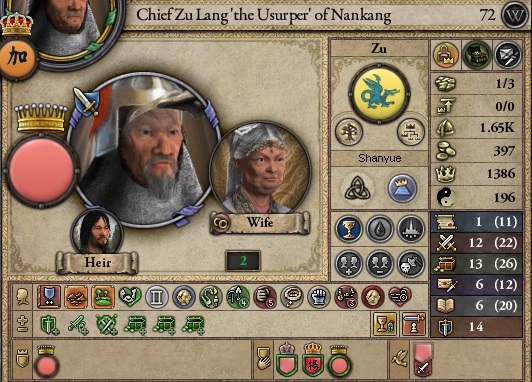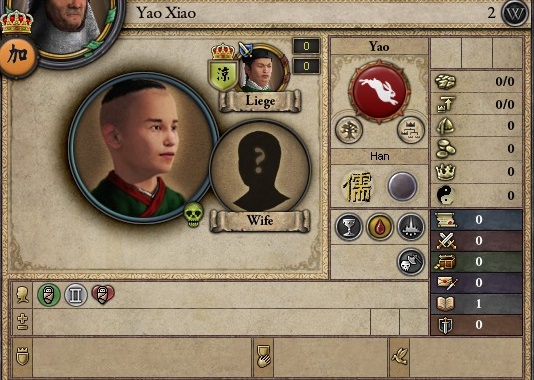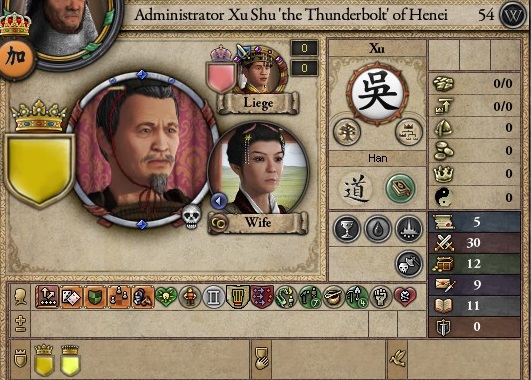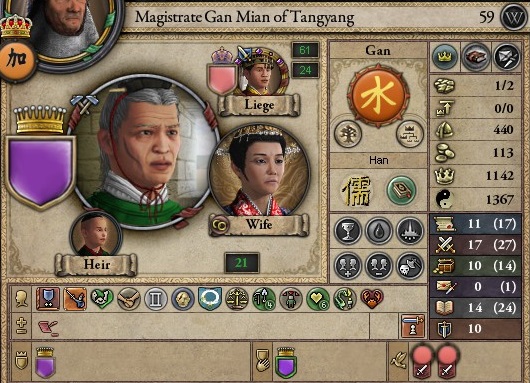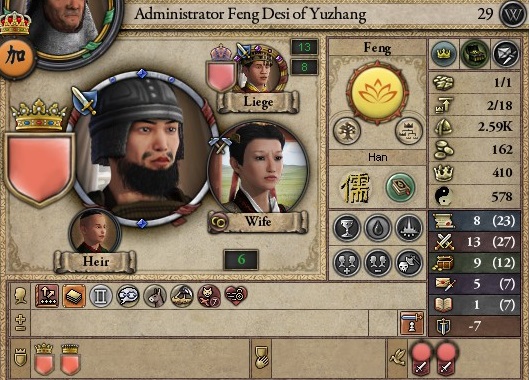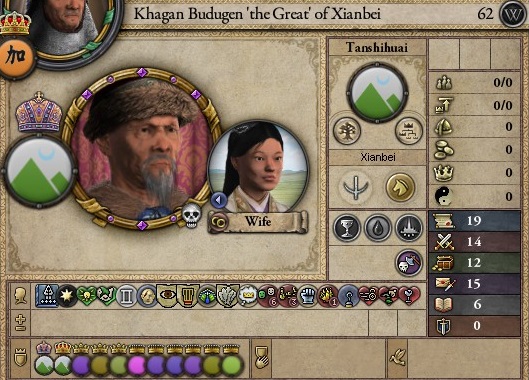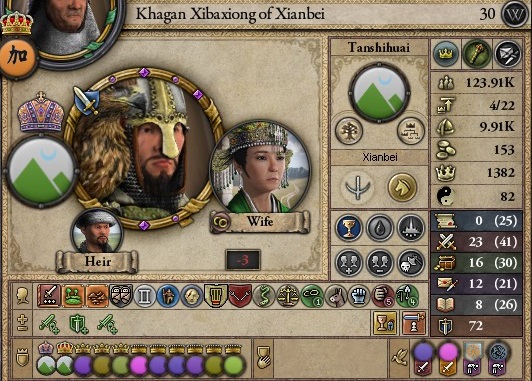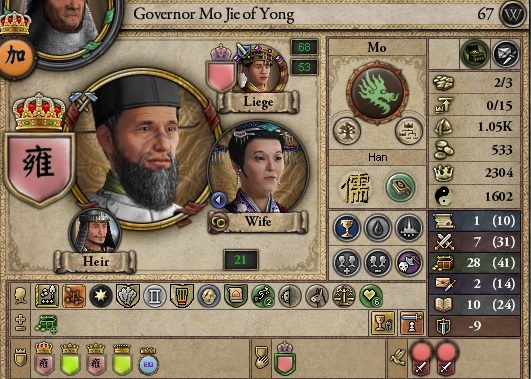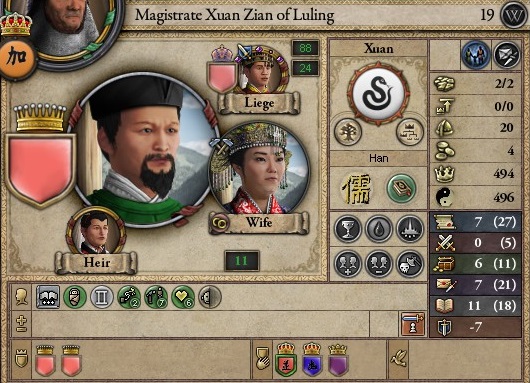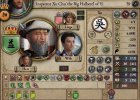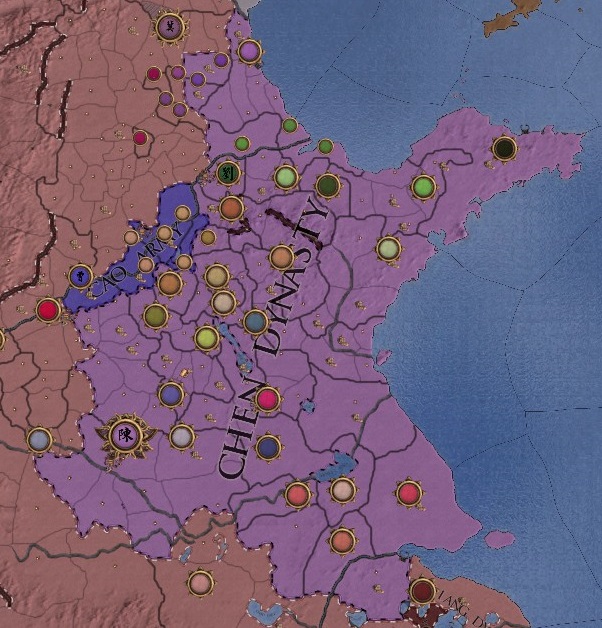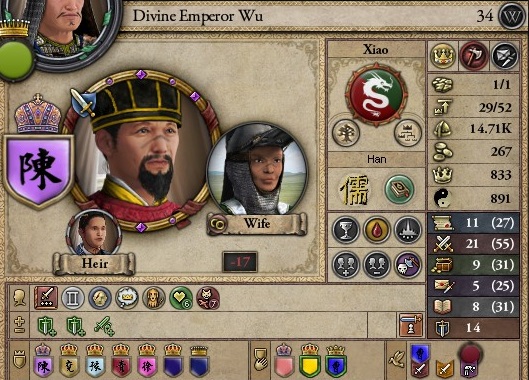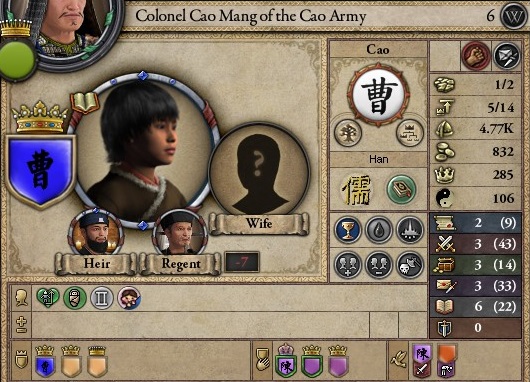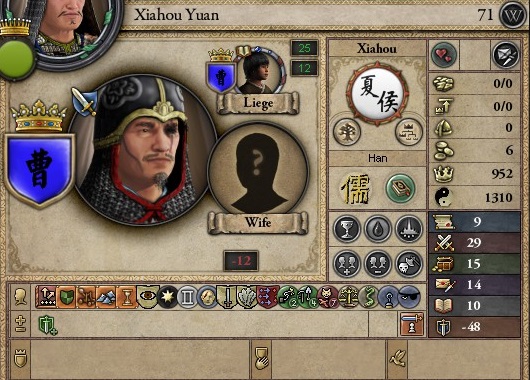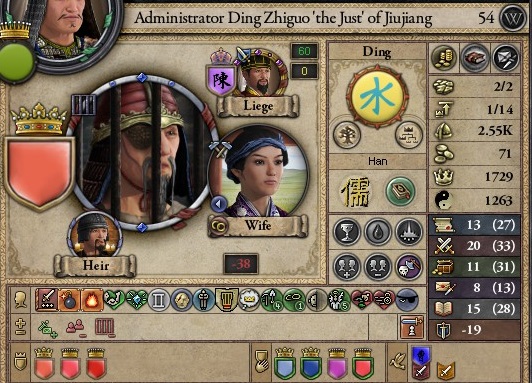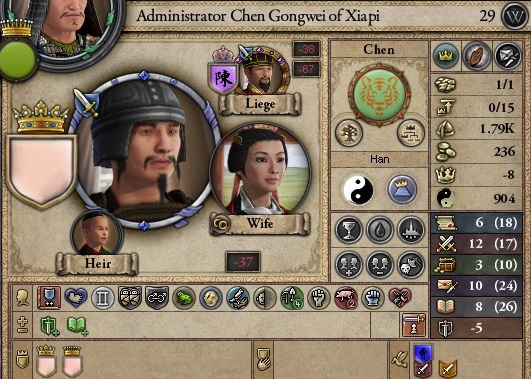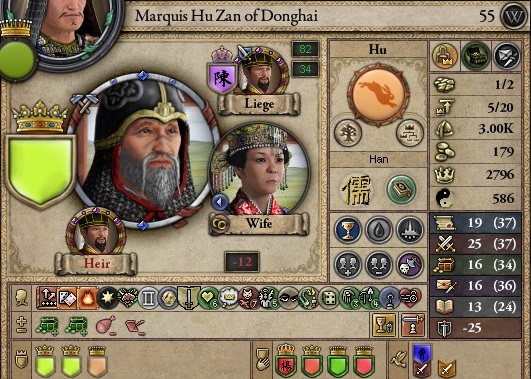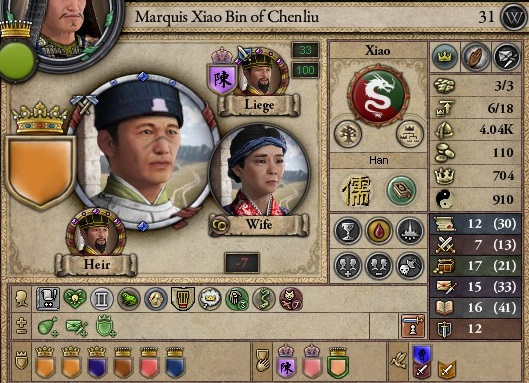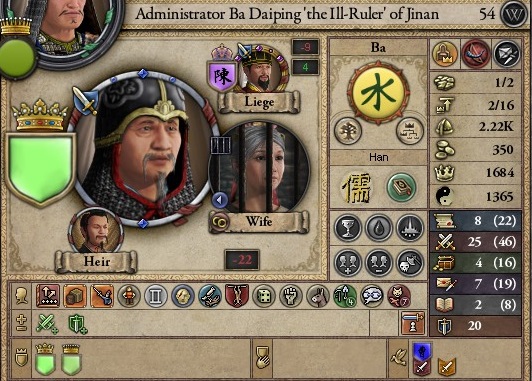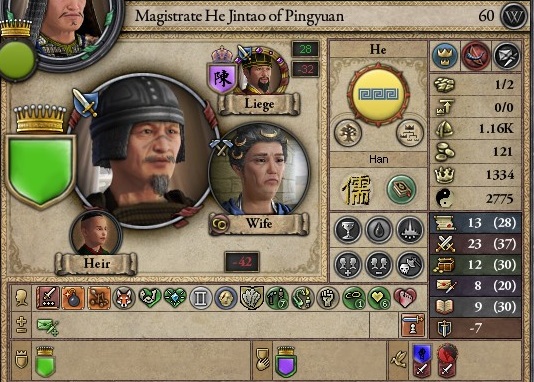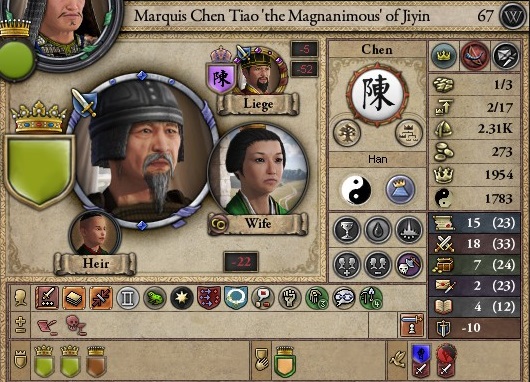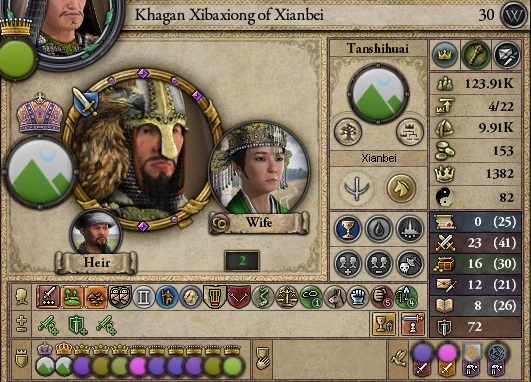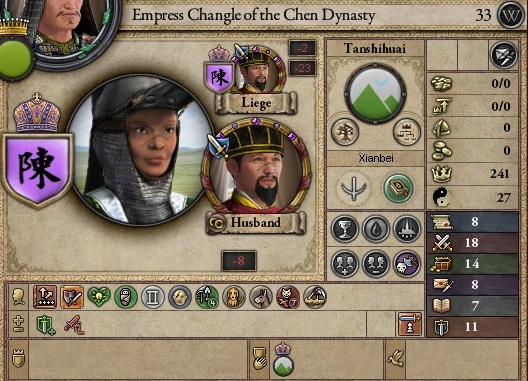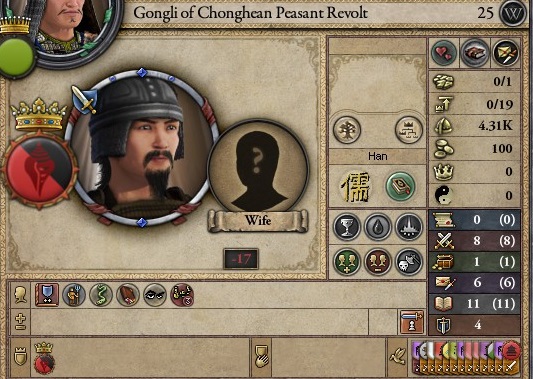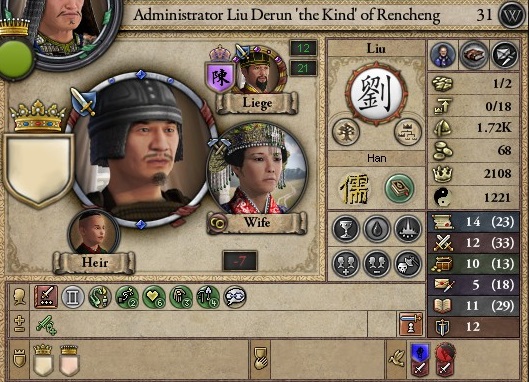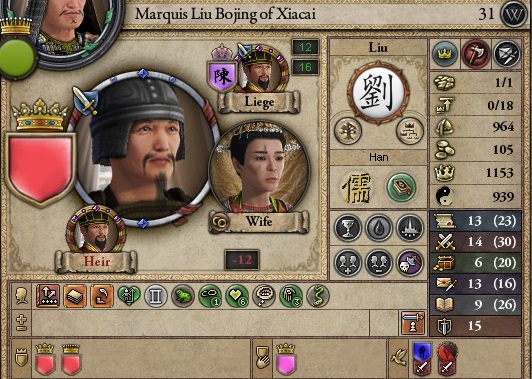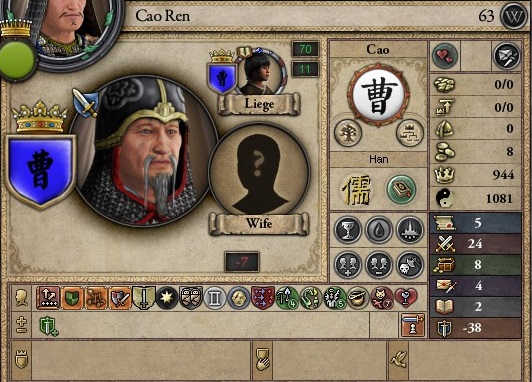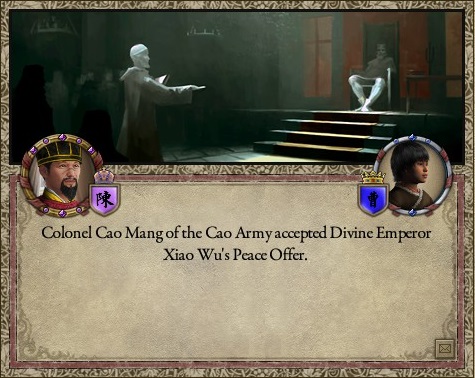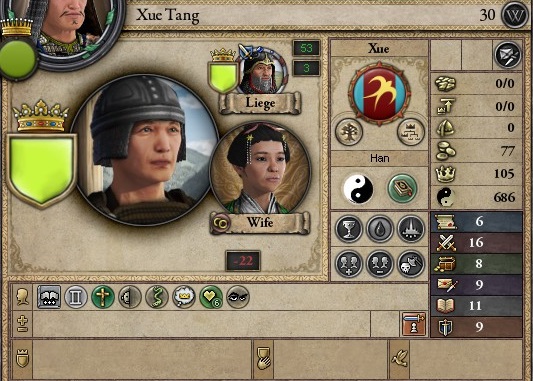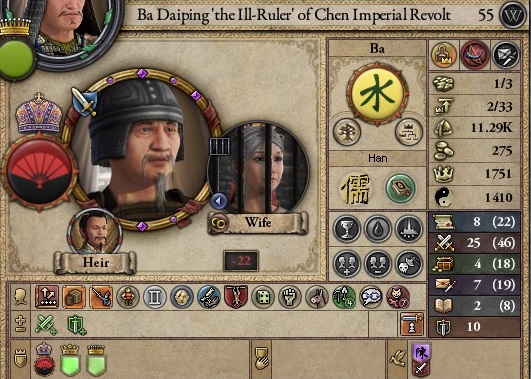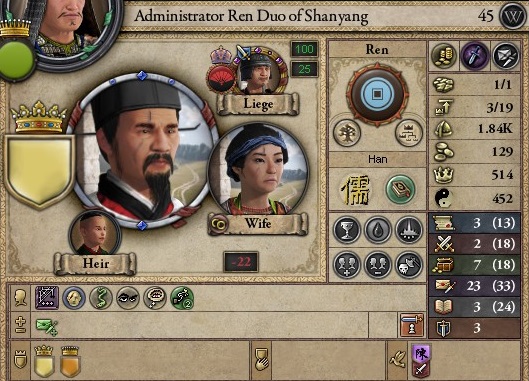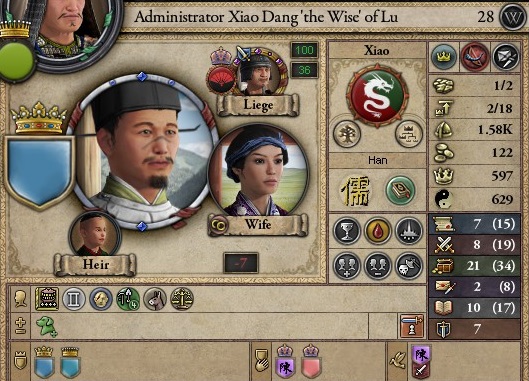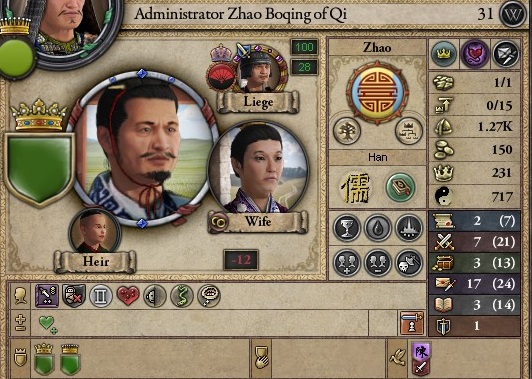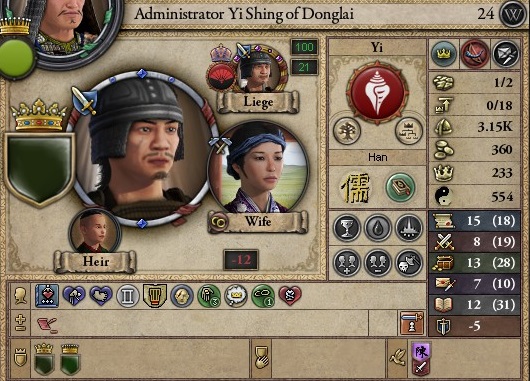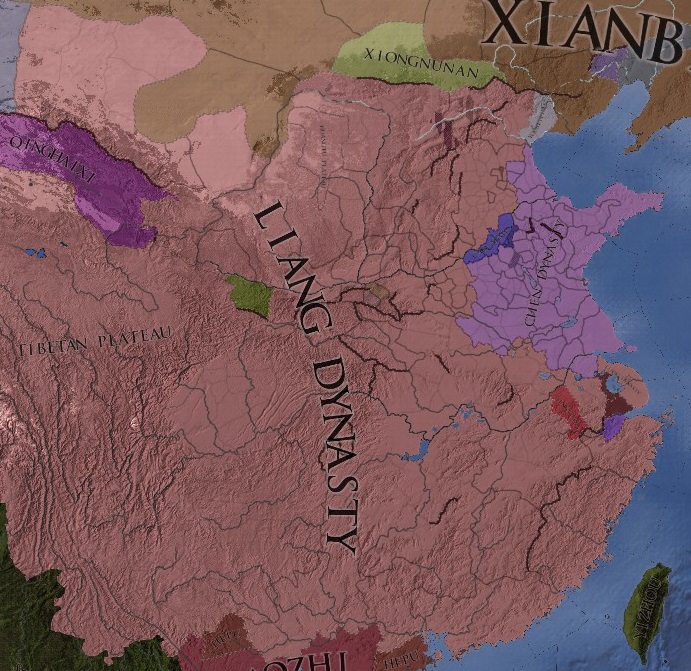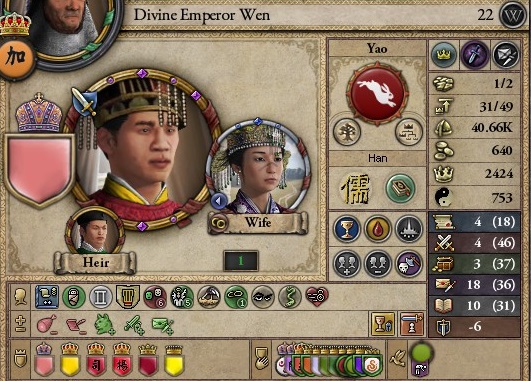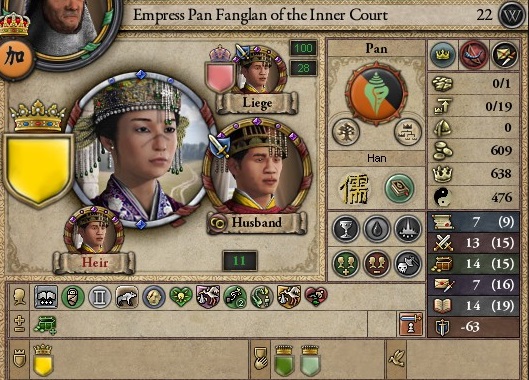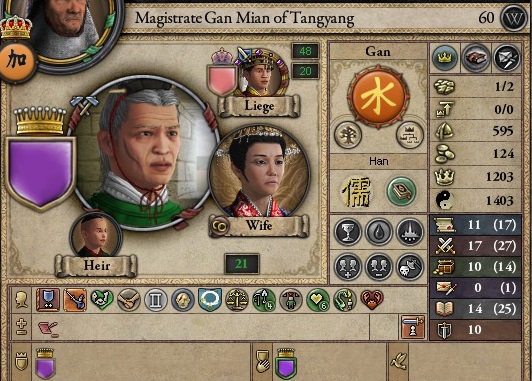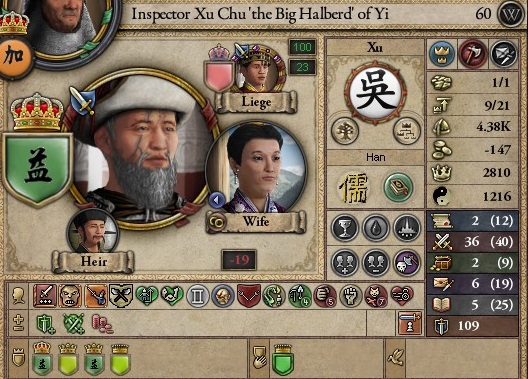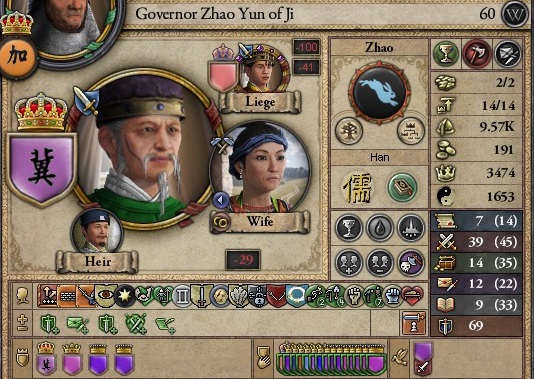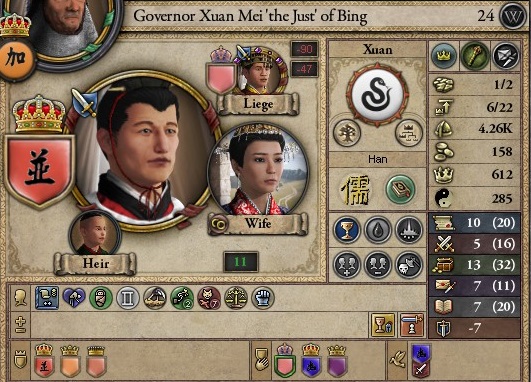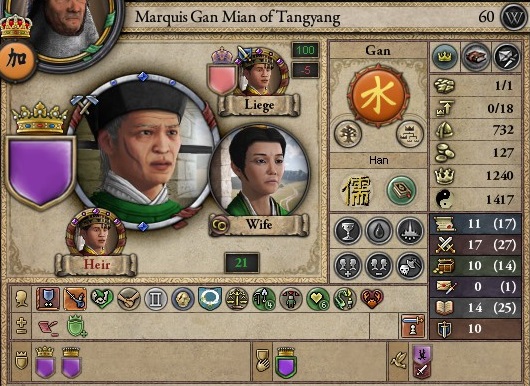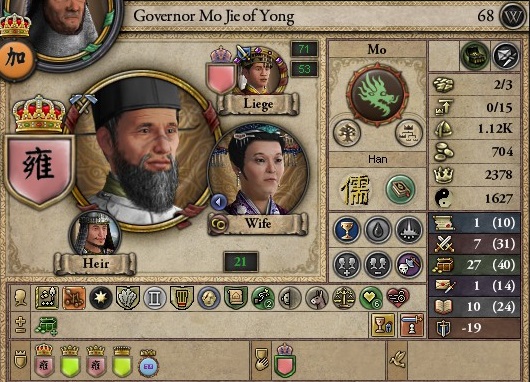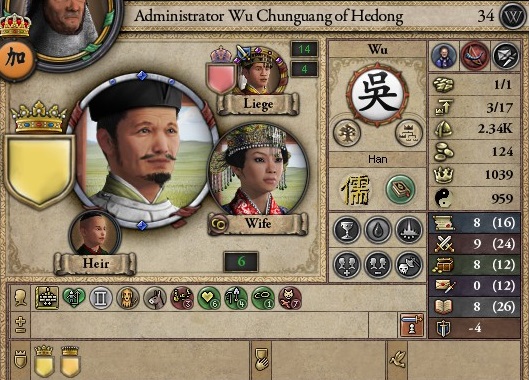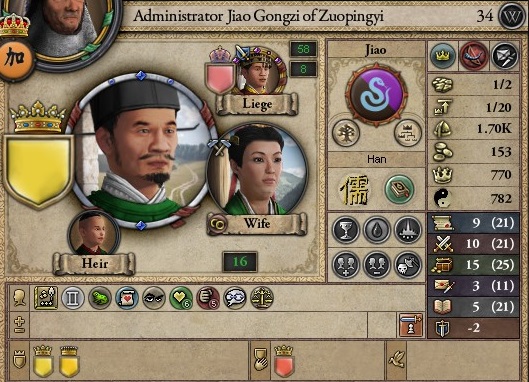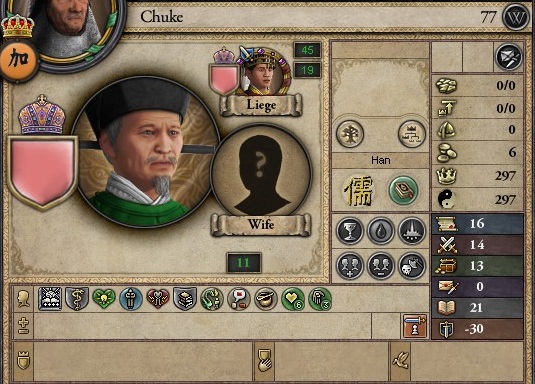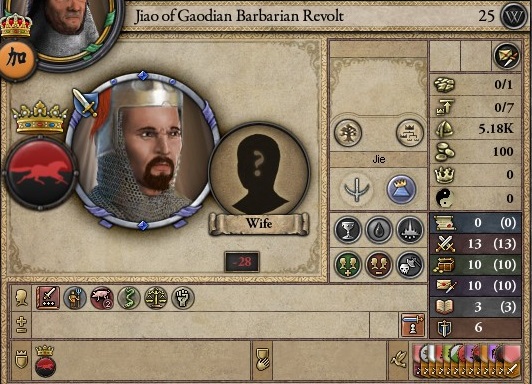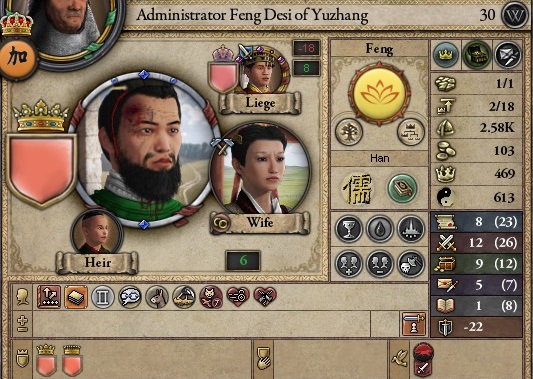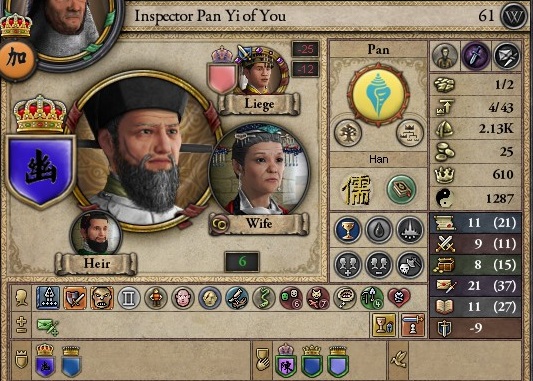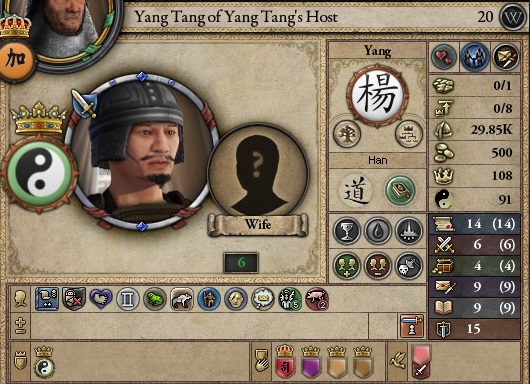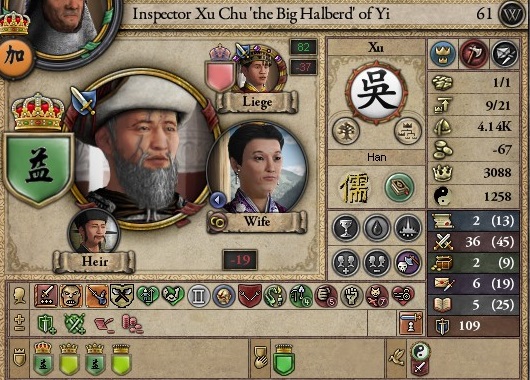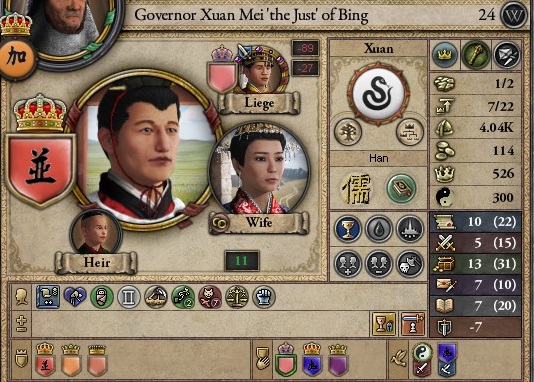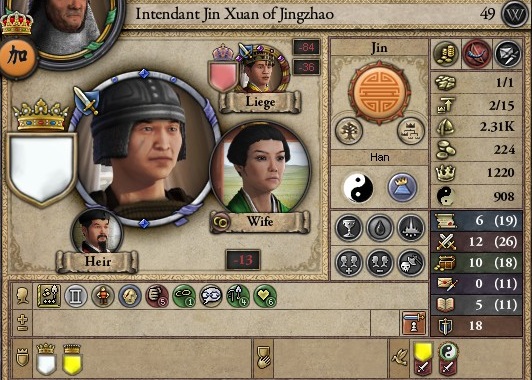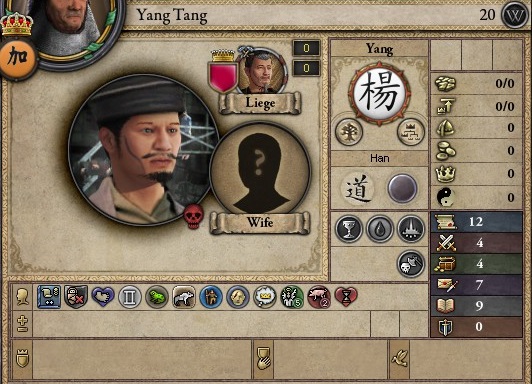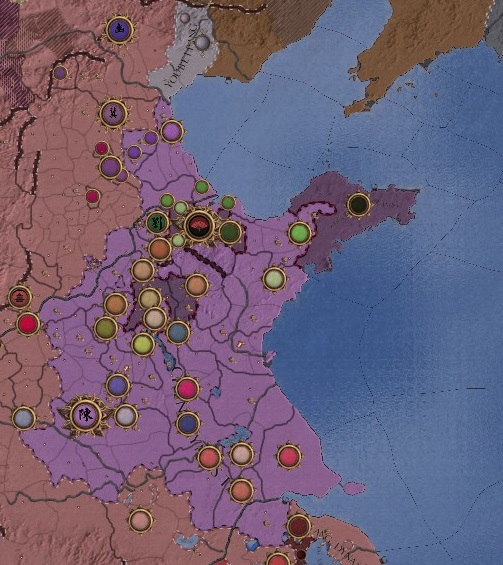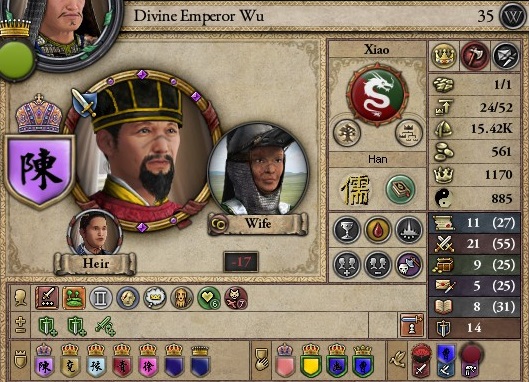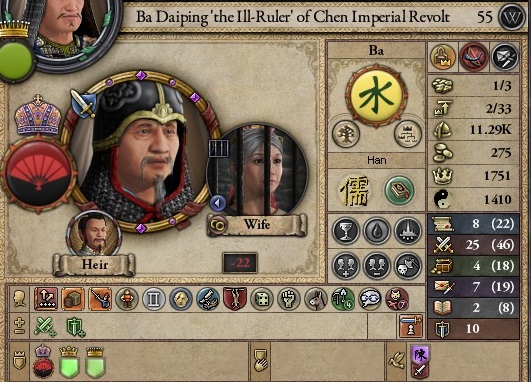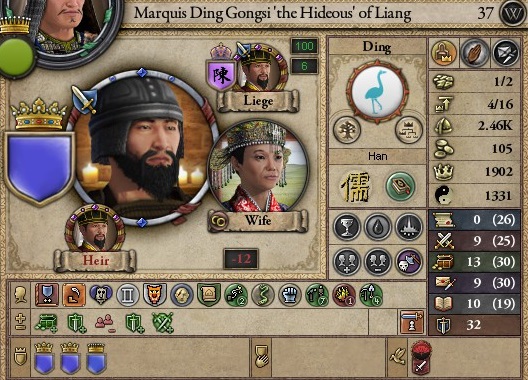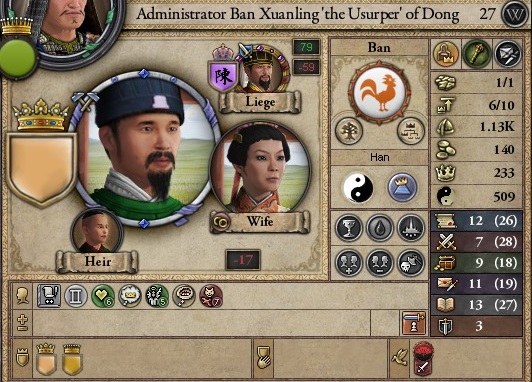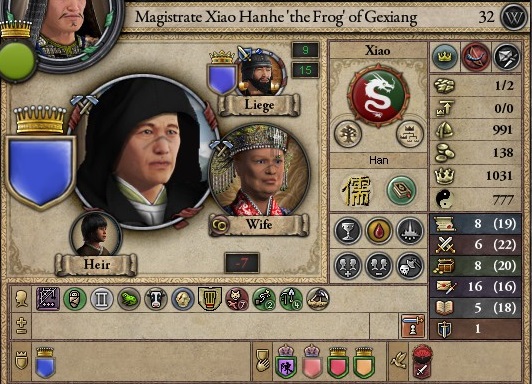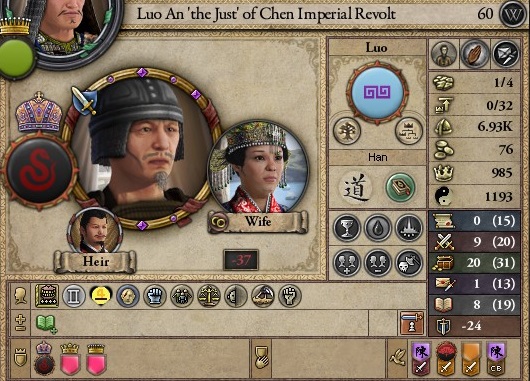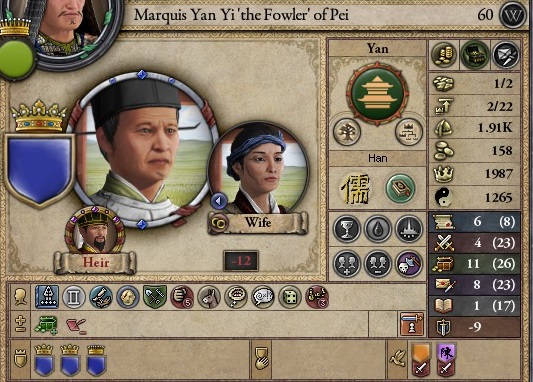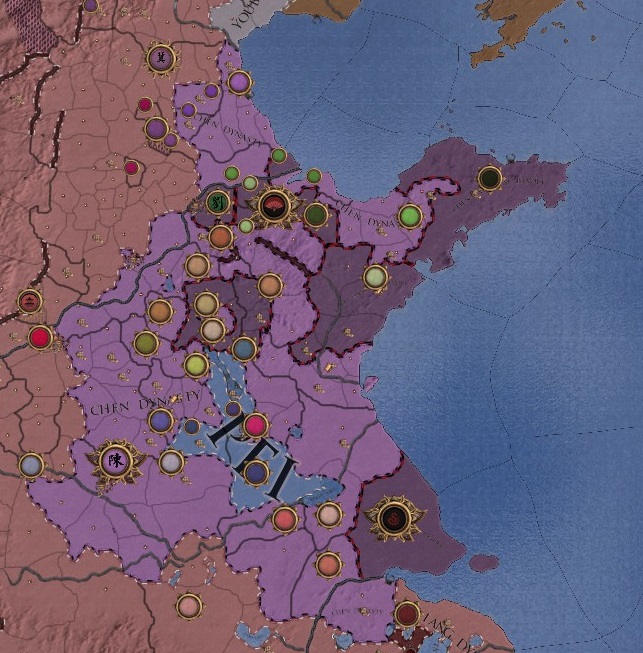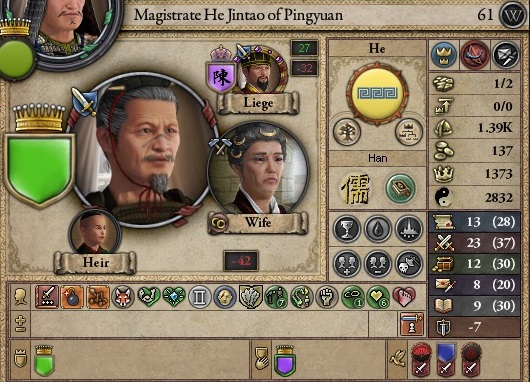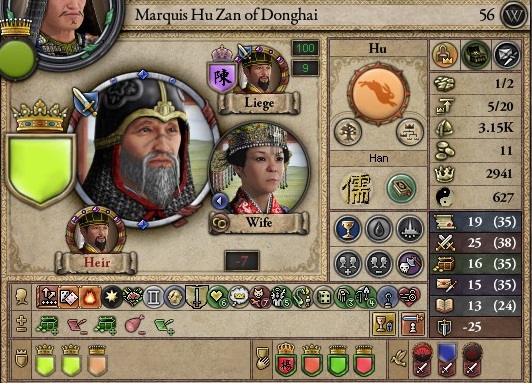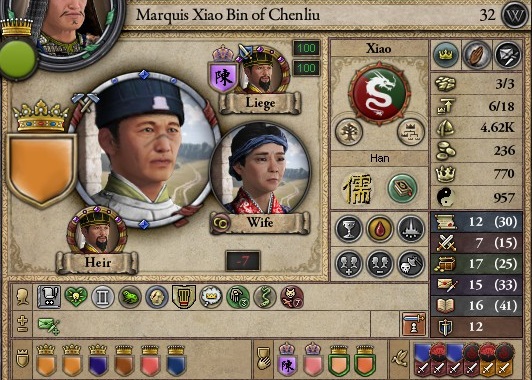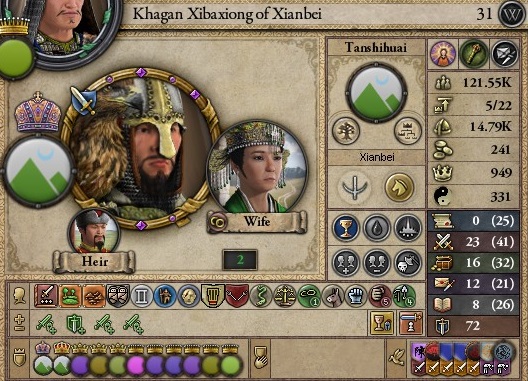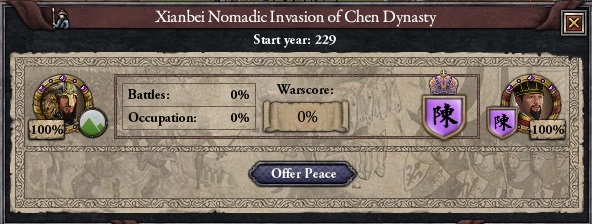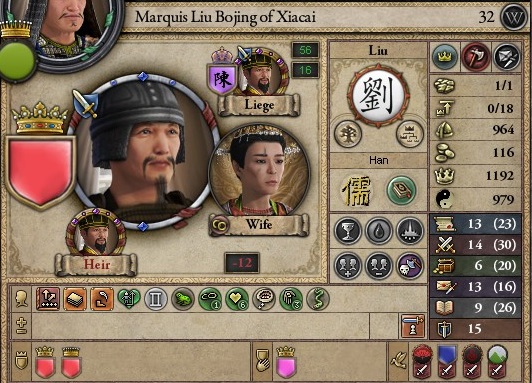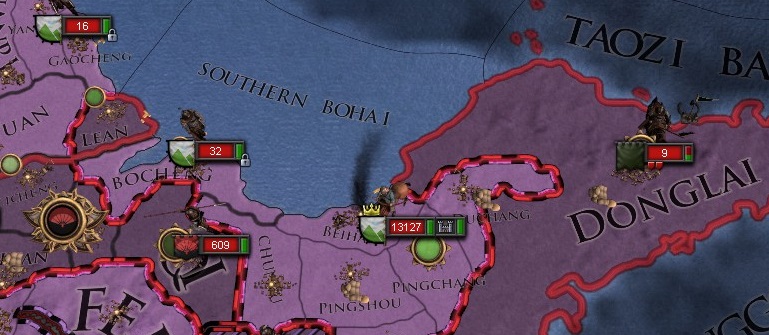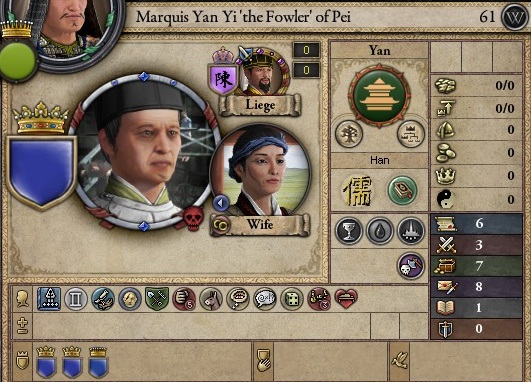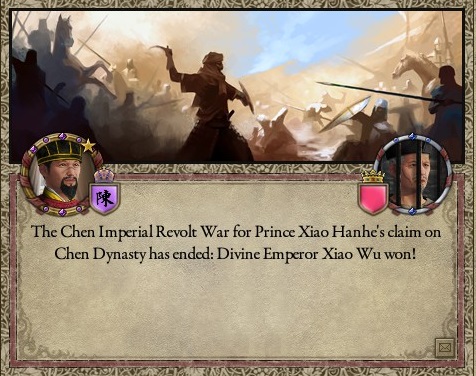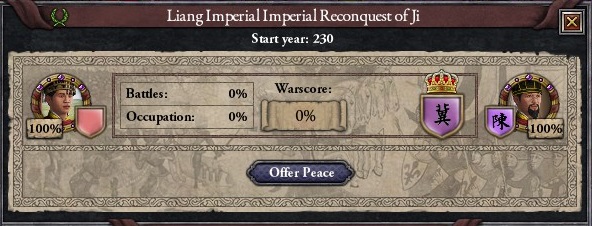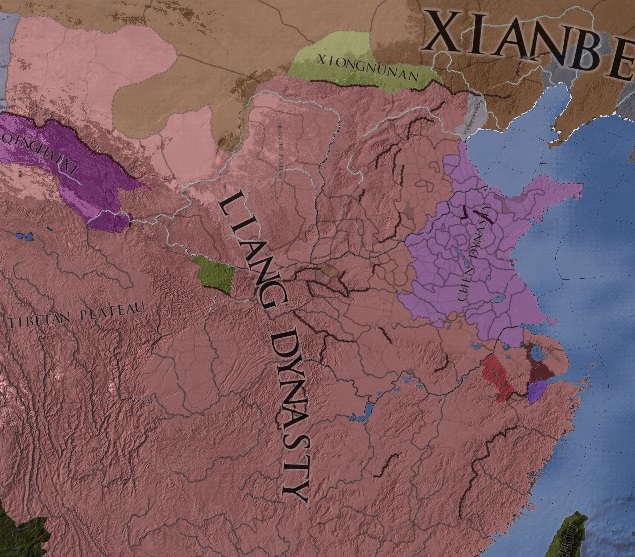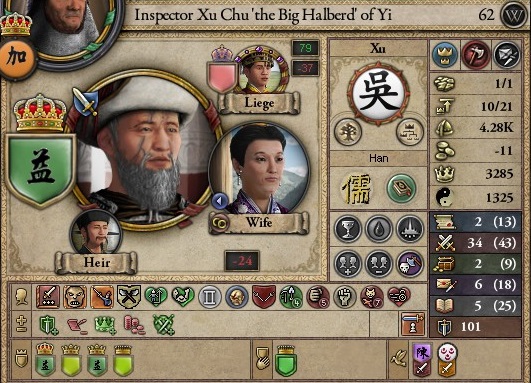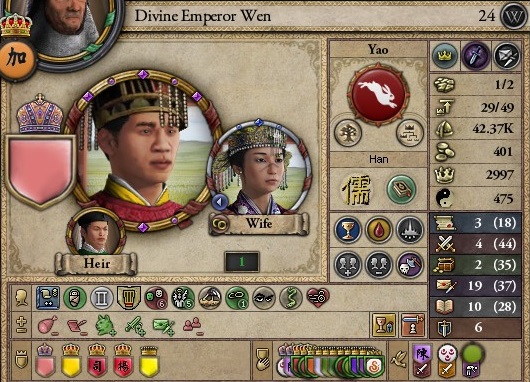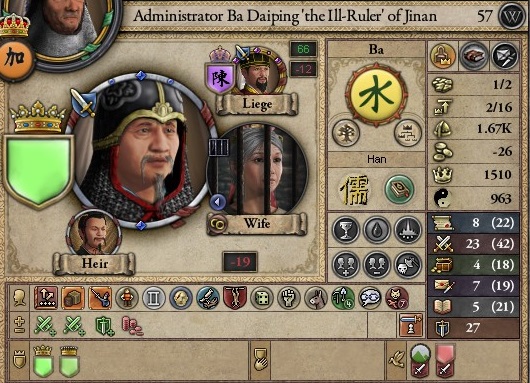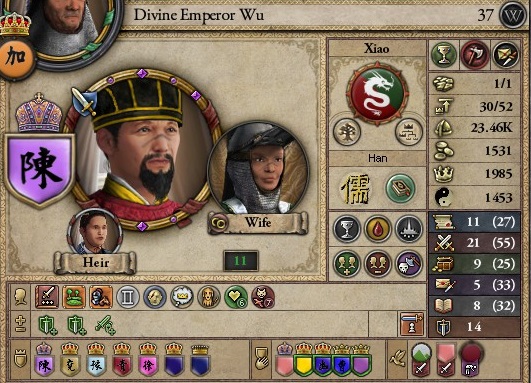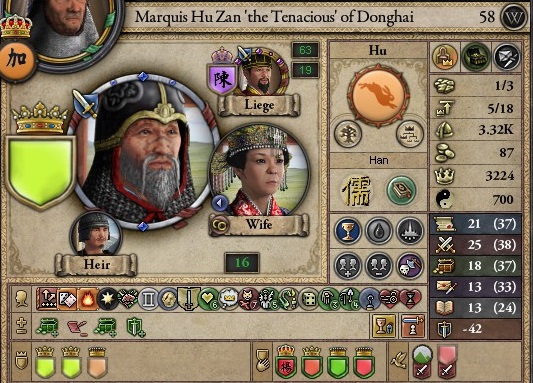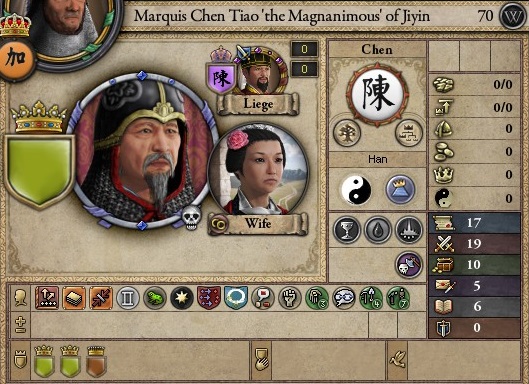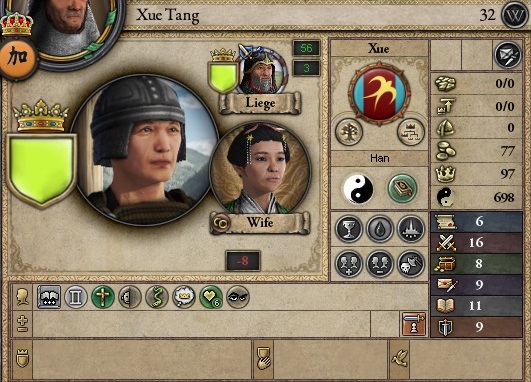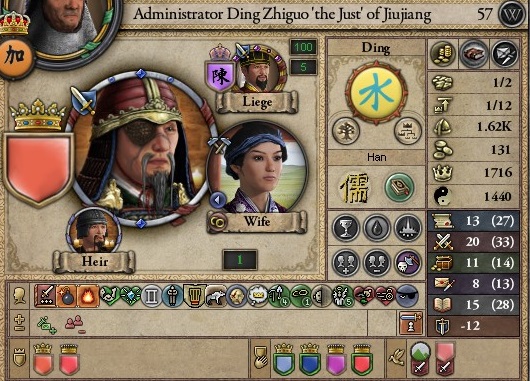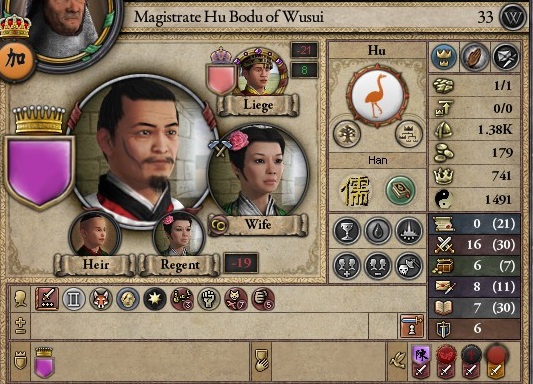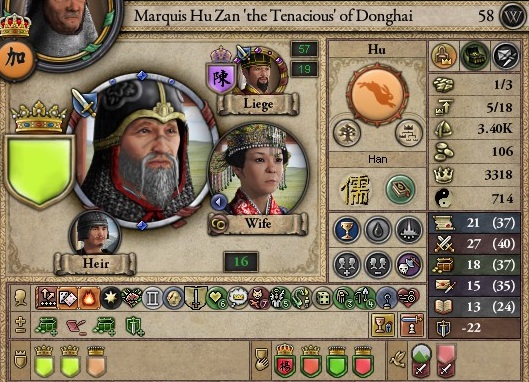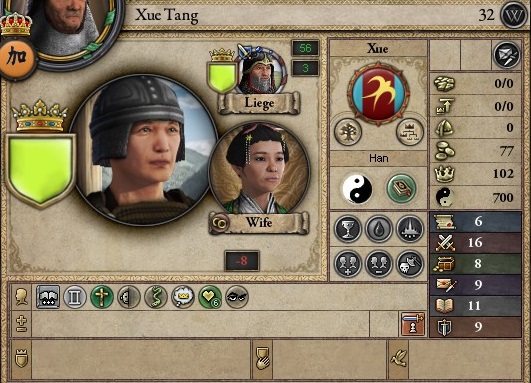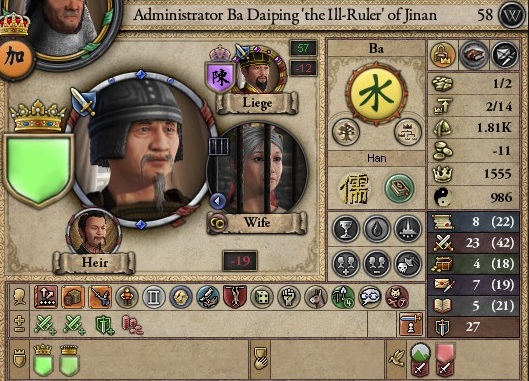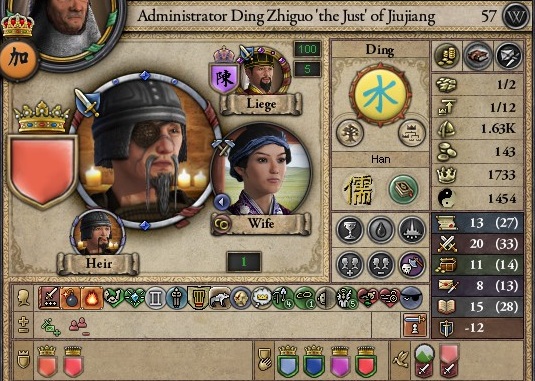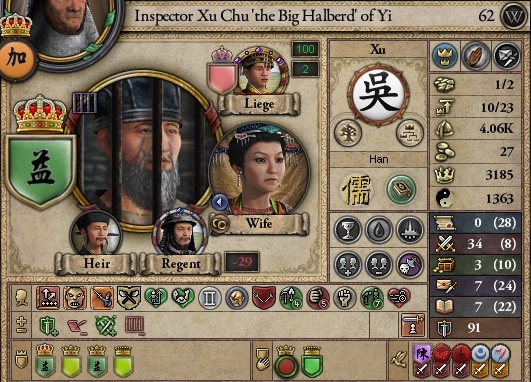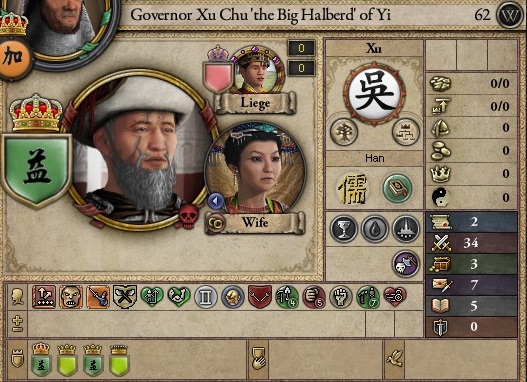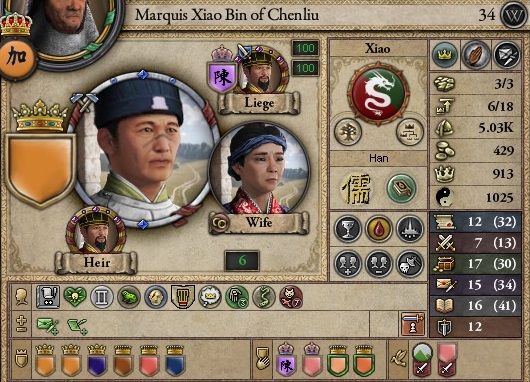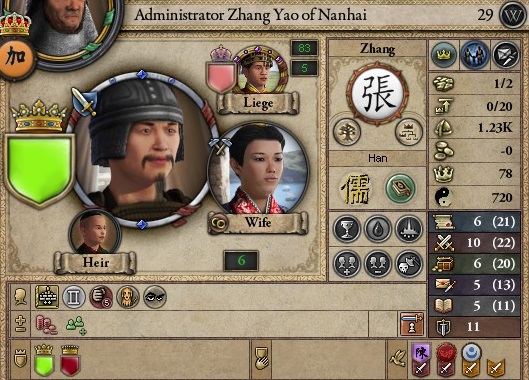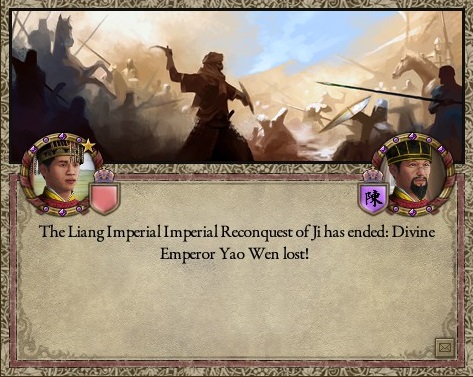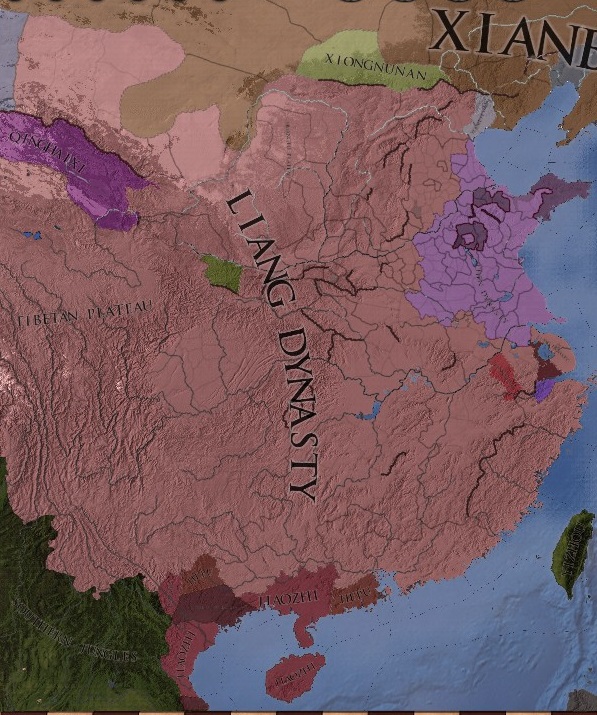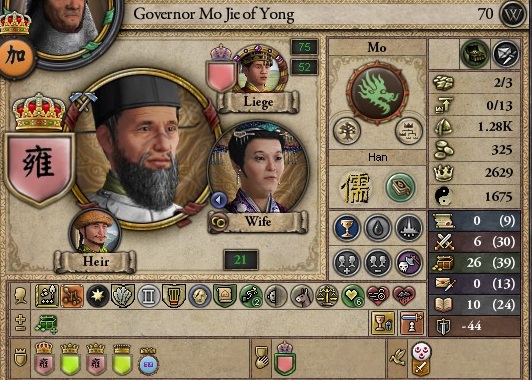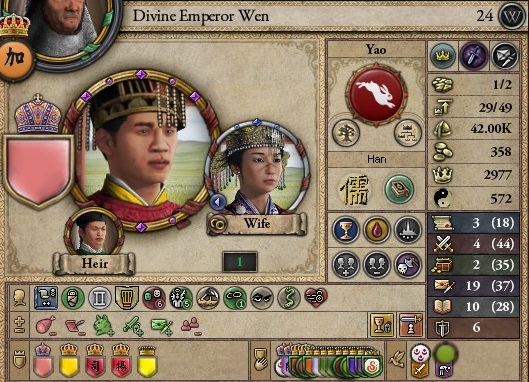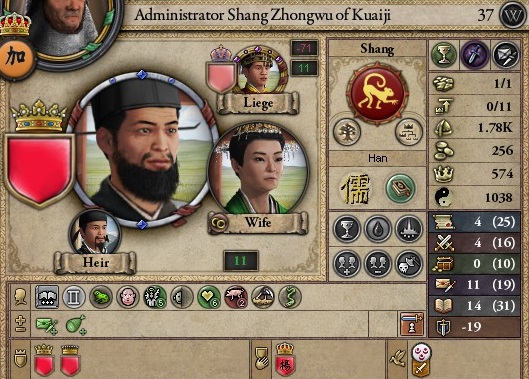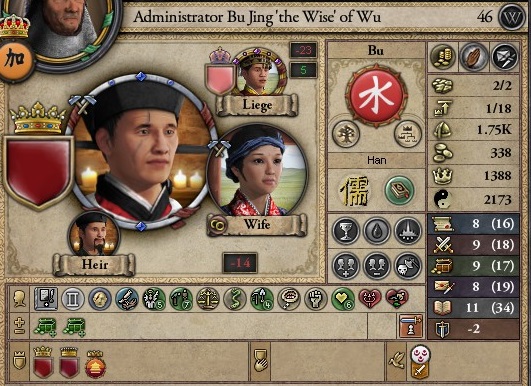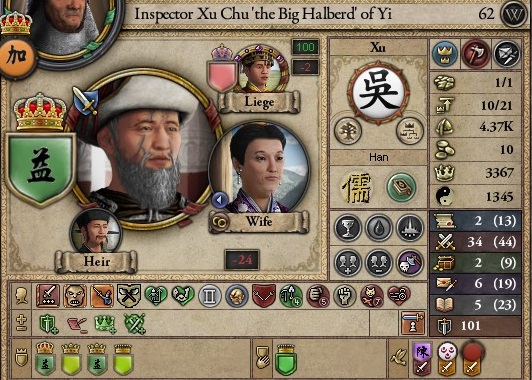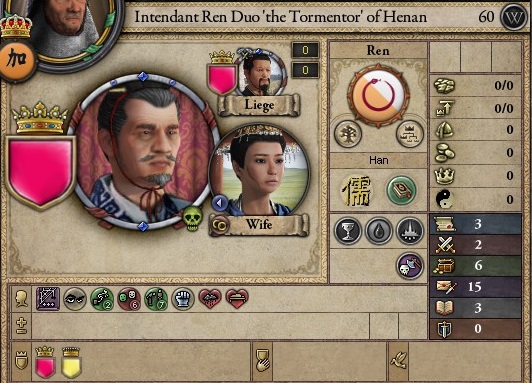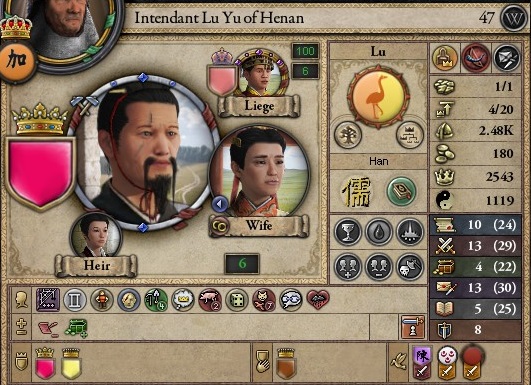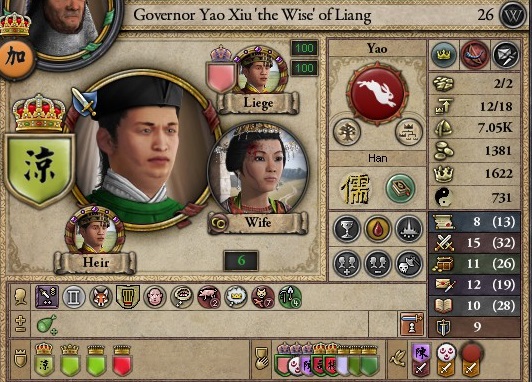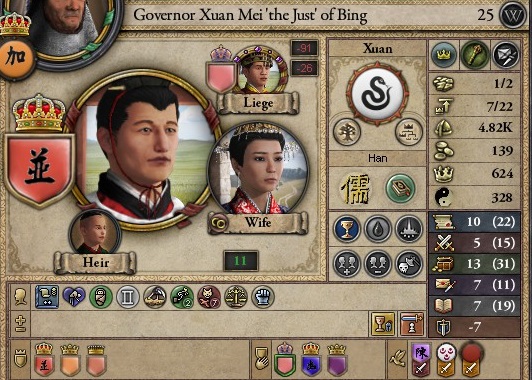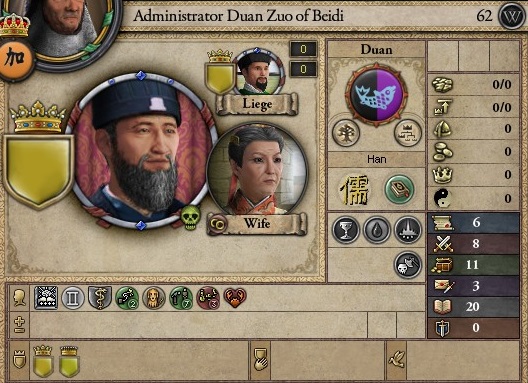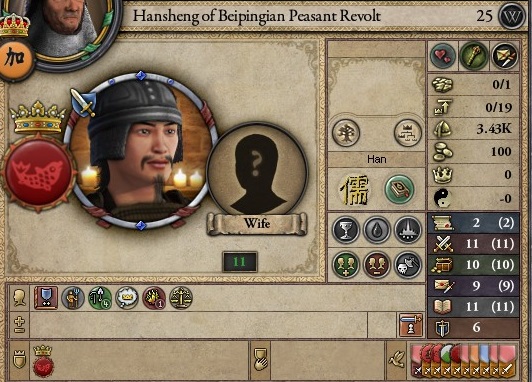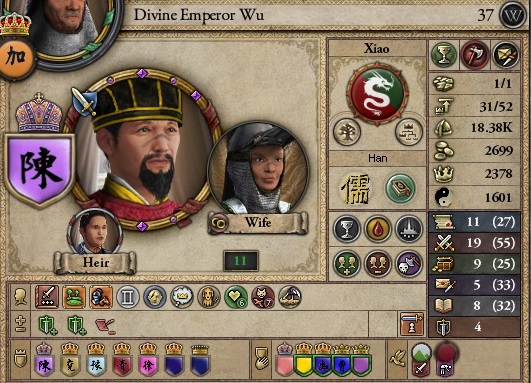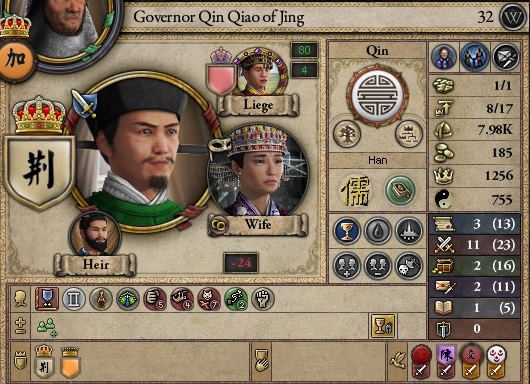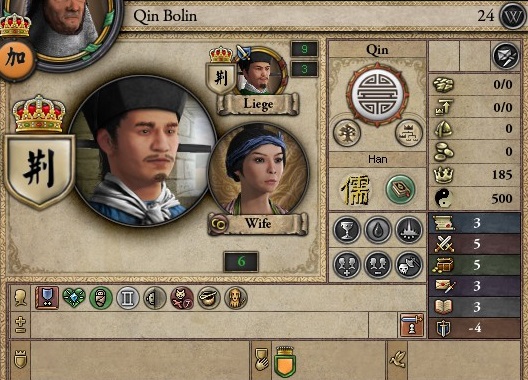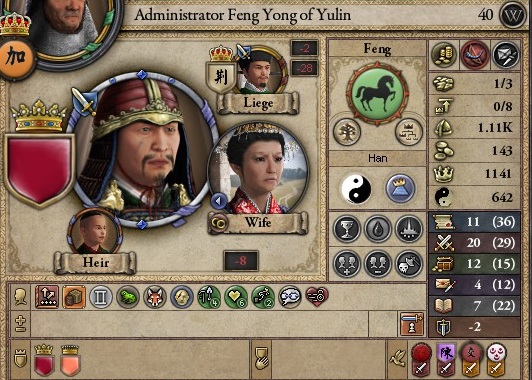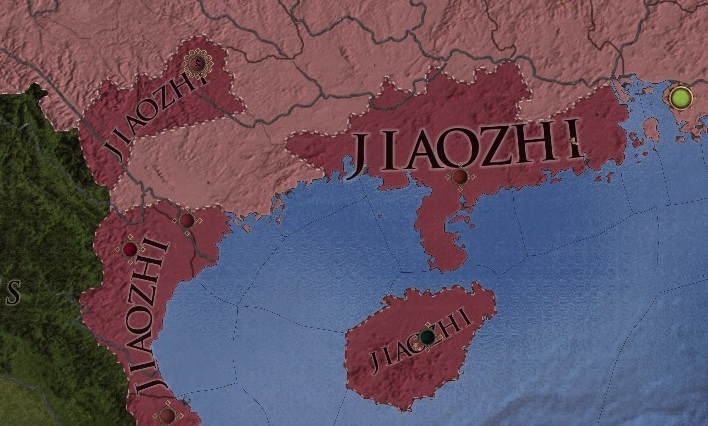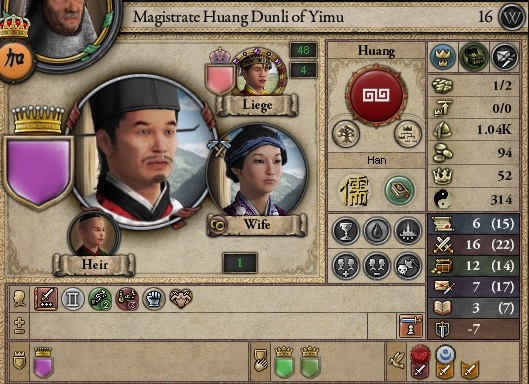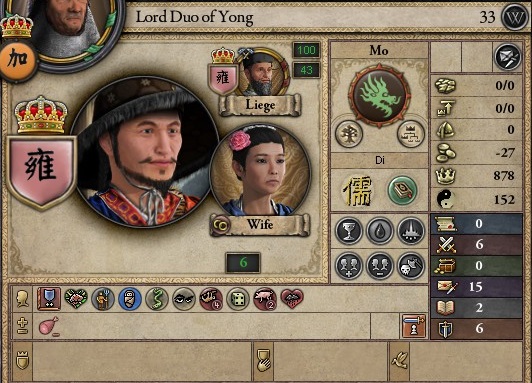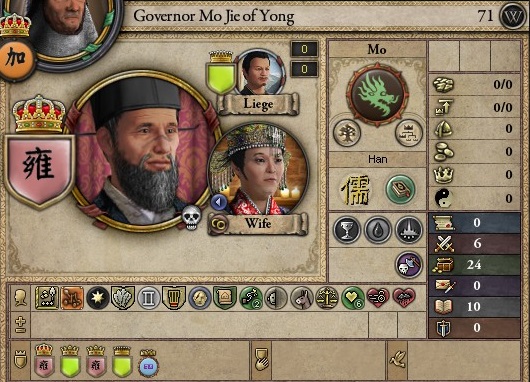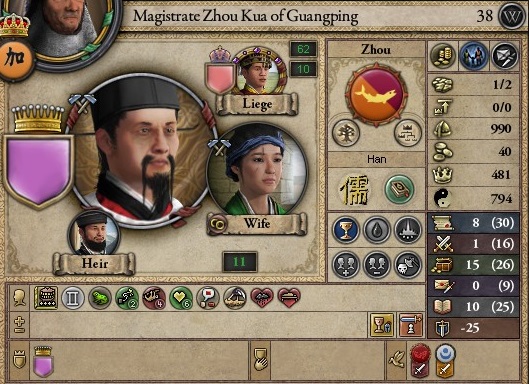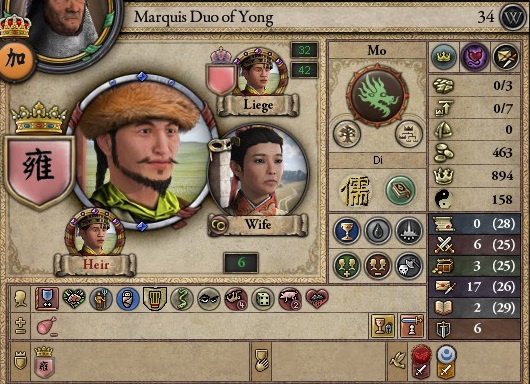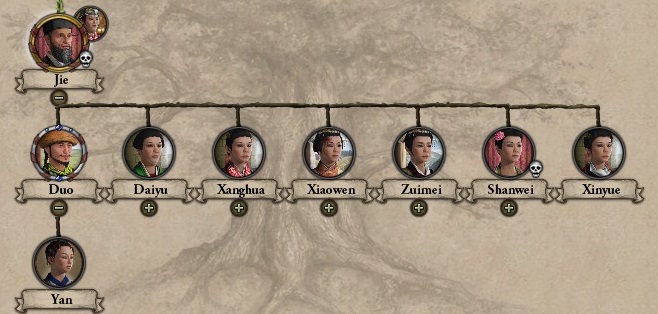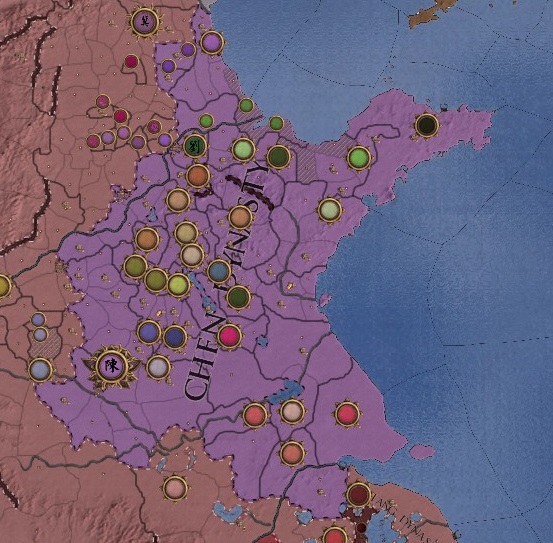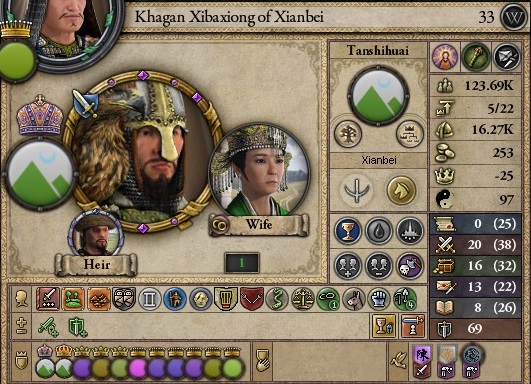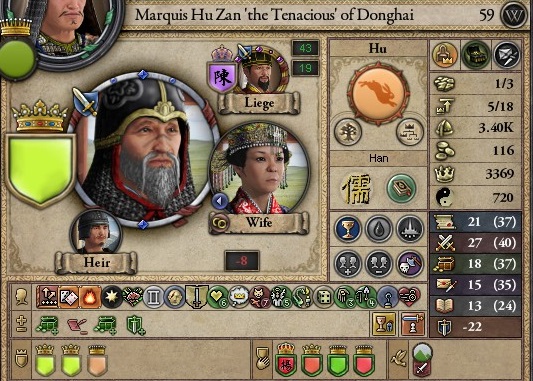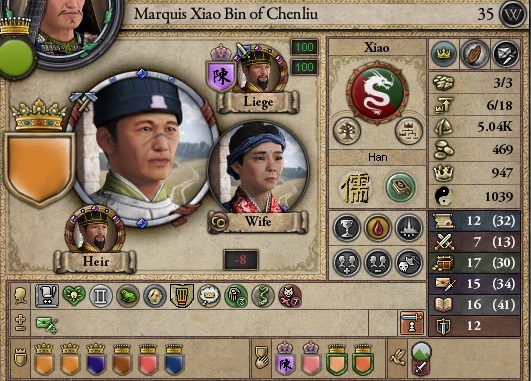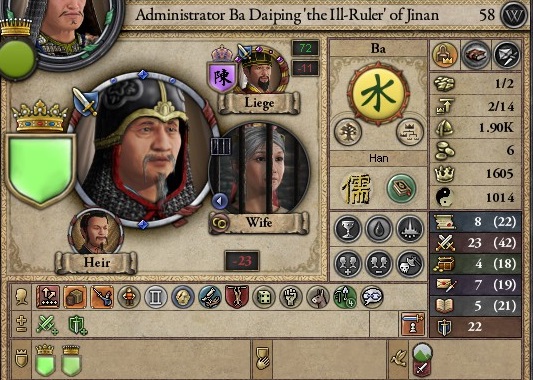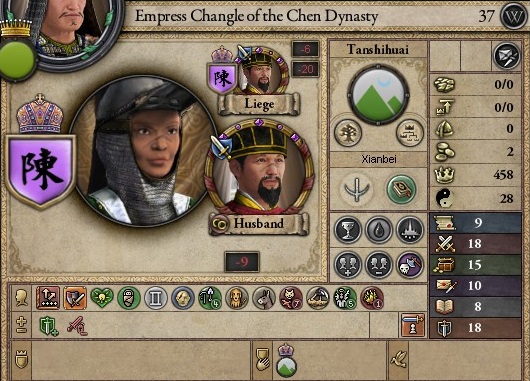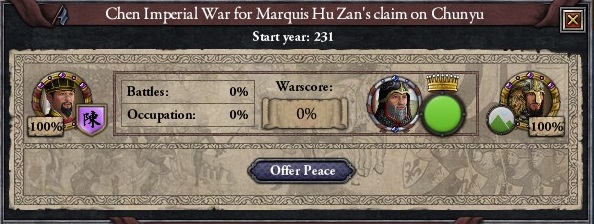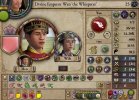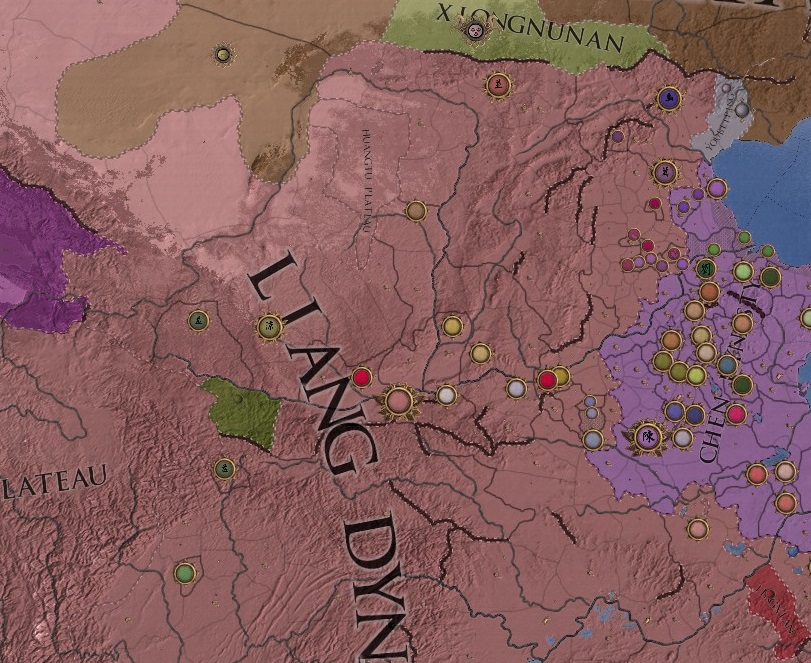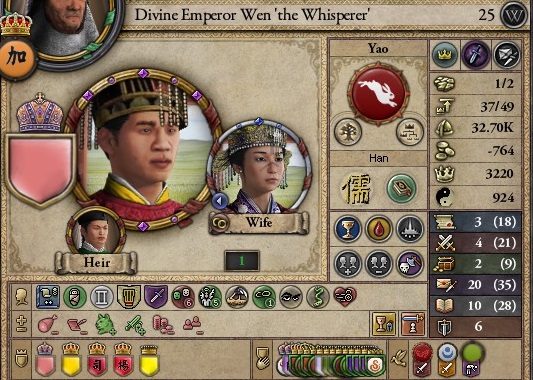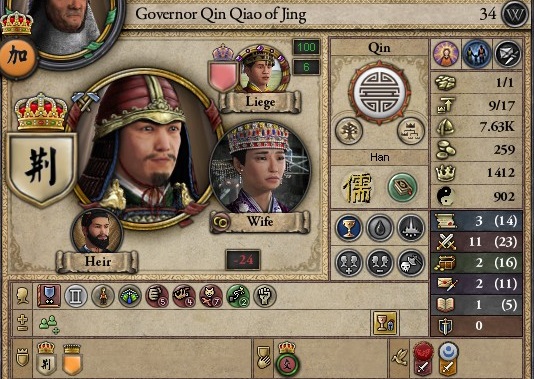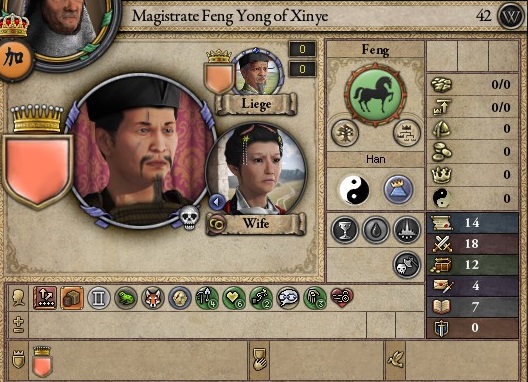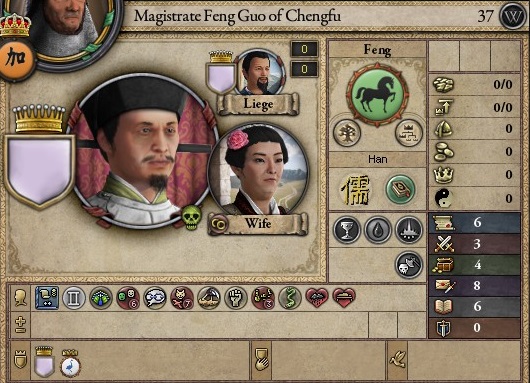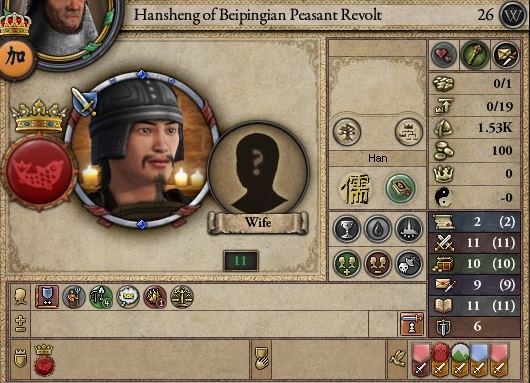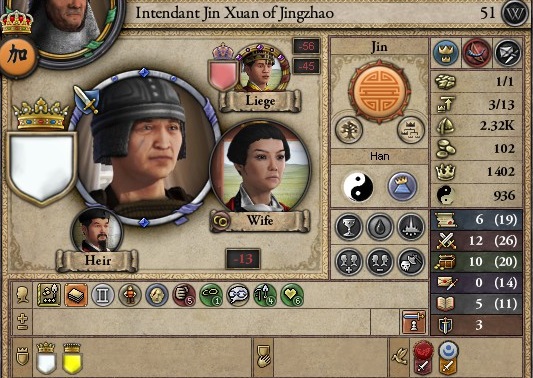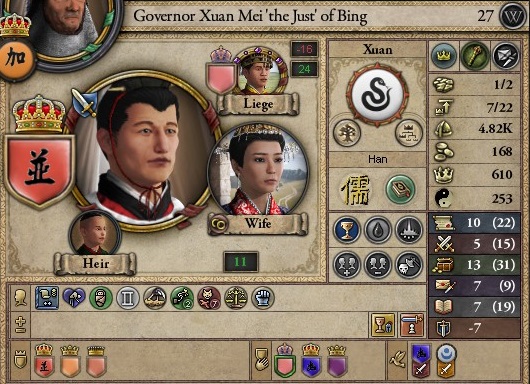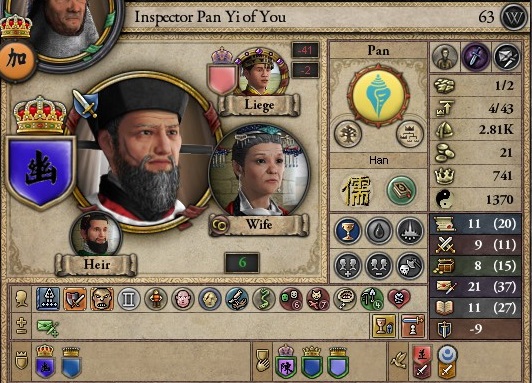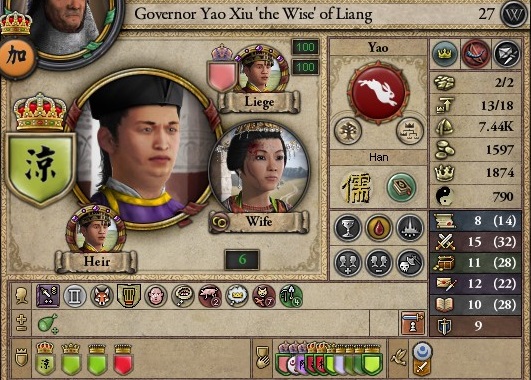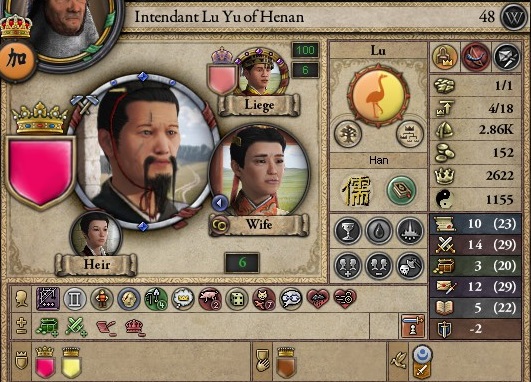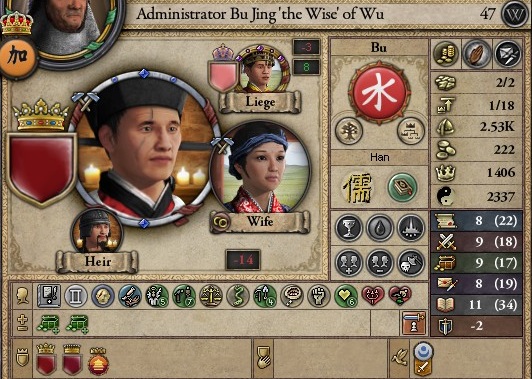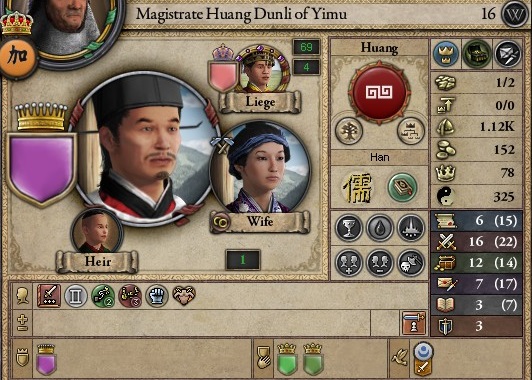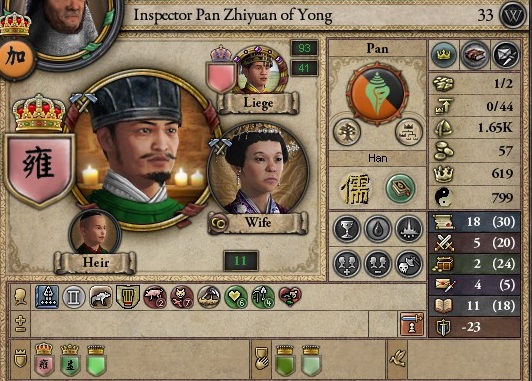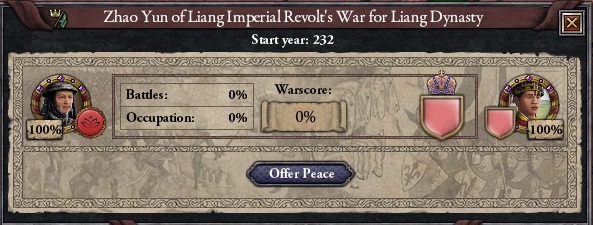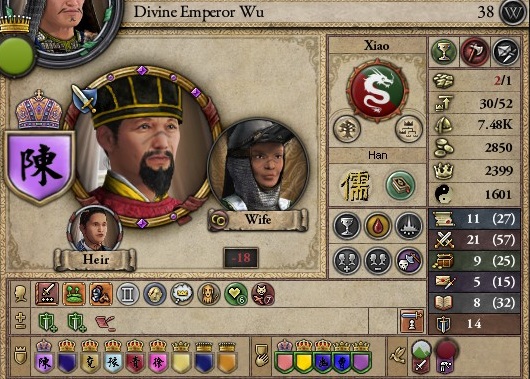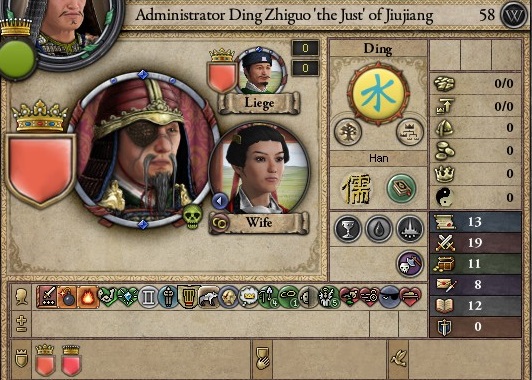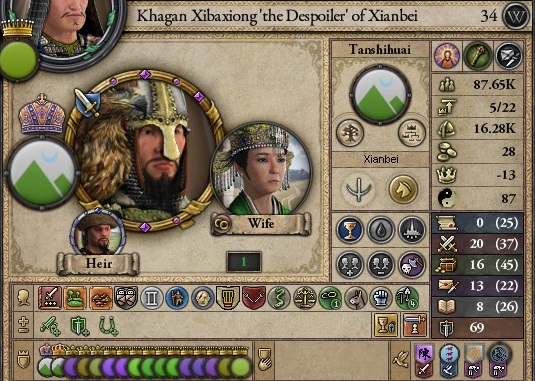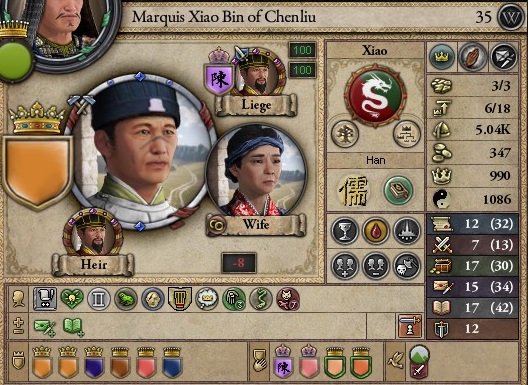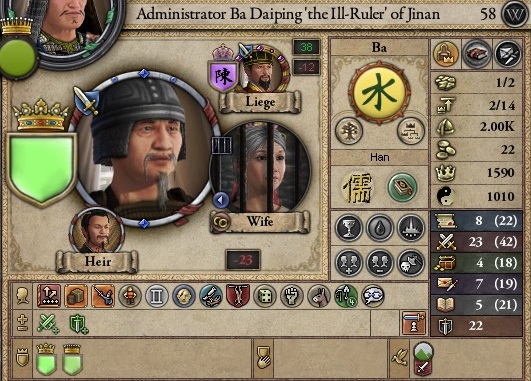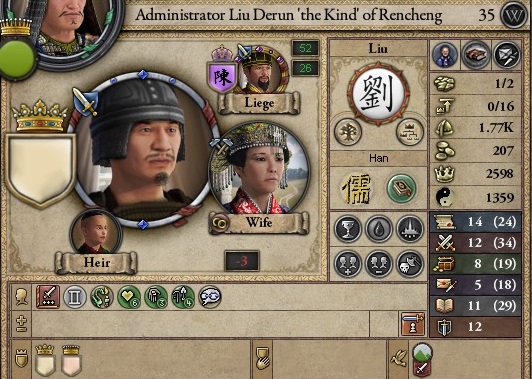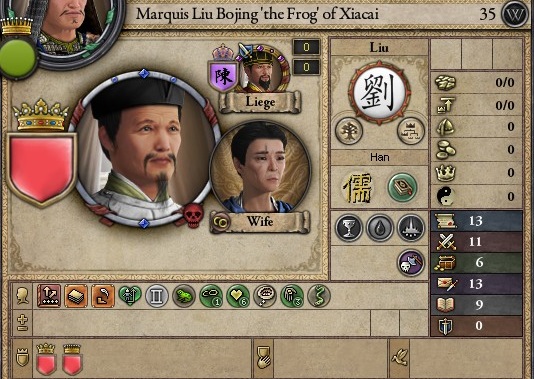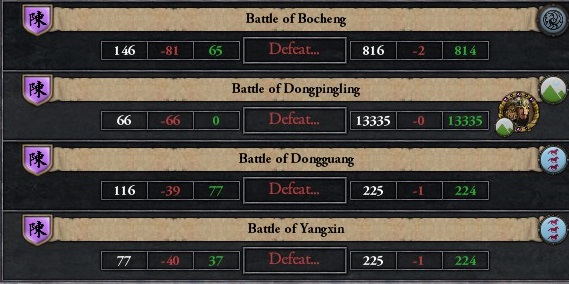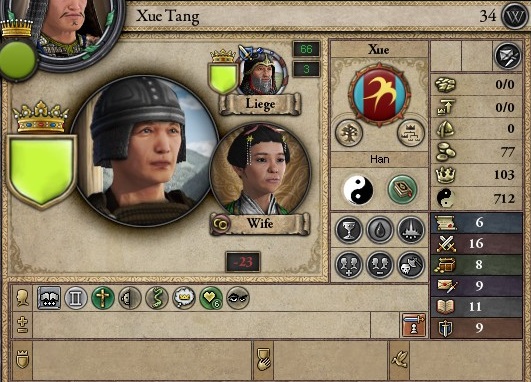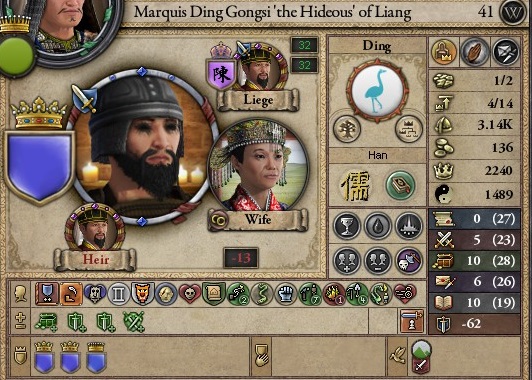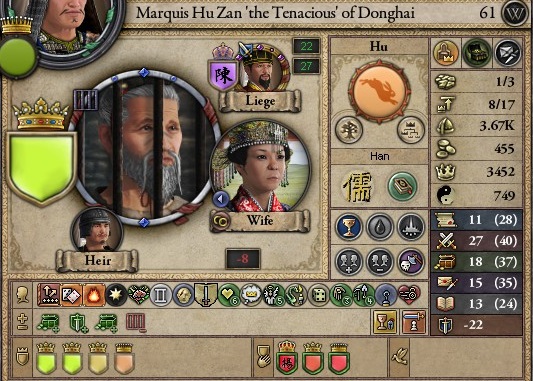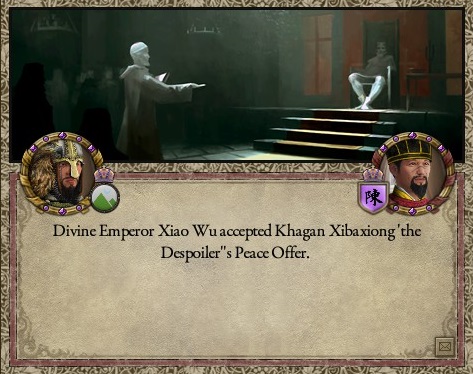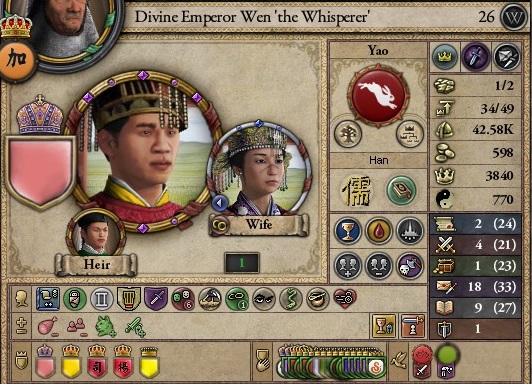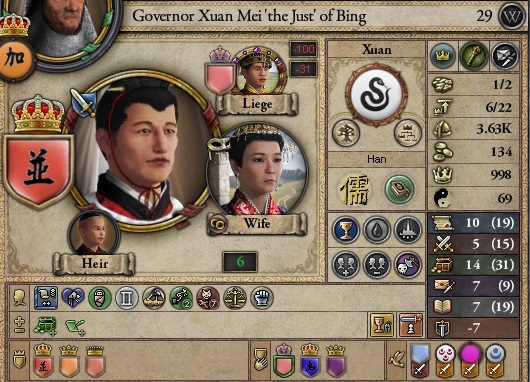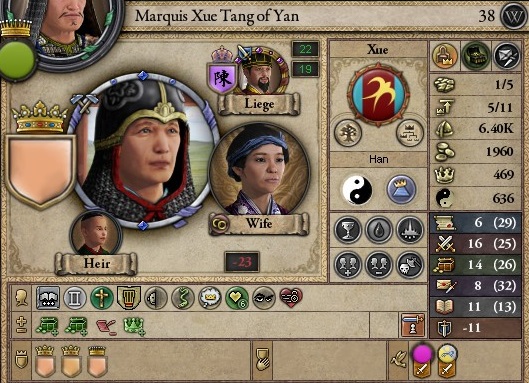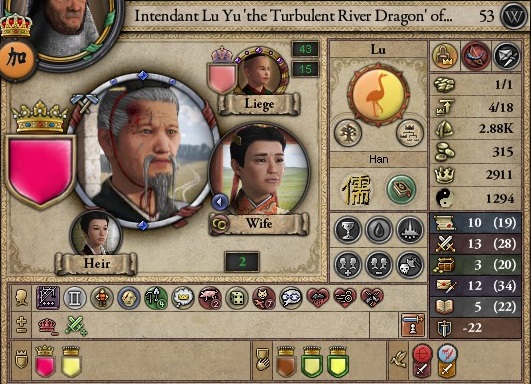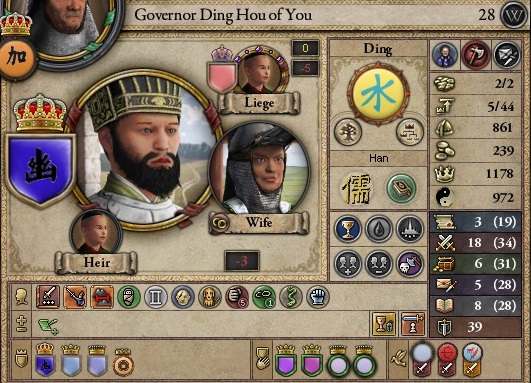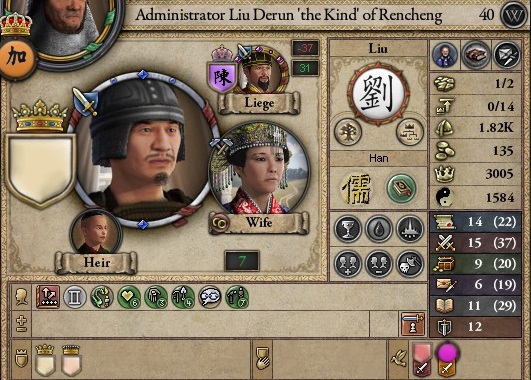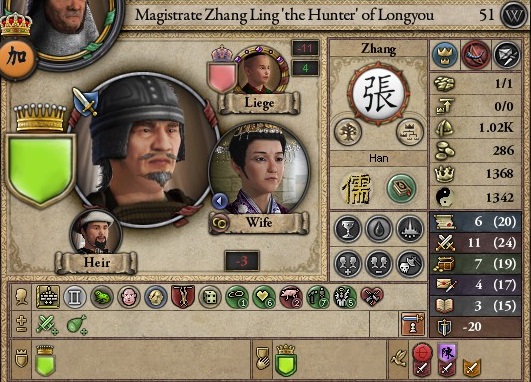226-227: MO JIE AND THE MINTING RIGHTS
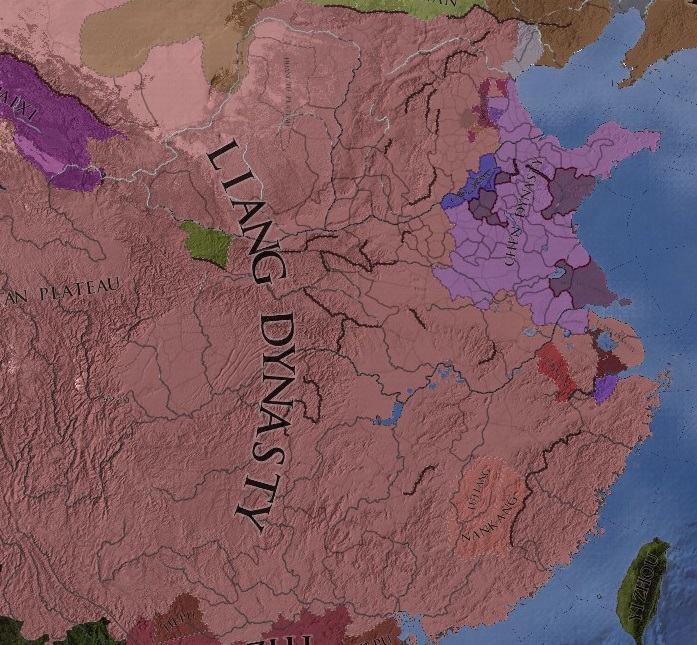
In 225, Mo Jie had been brought back as Excellency of Work by Emperor Wen in an attempt to link his reign to that of his father. As such, older officials who had been pushed aside by Emperor Anwu started to resurface and regain some of their lost prominence. Mo Jie would probably be one of the most successful of these elderlies returning to active duties, as he not only managed to get his old job back but also gained far more influ7ence than he had under the previous regime. His return in the Imperial Capital certainly led to many talks, especially considering how he had been kicked out of Chang’an. Yet here he was again, with a big happy smile on his face and a massive agenda to push forward.
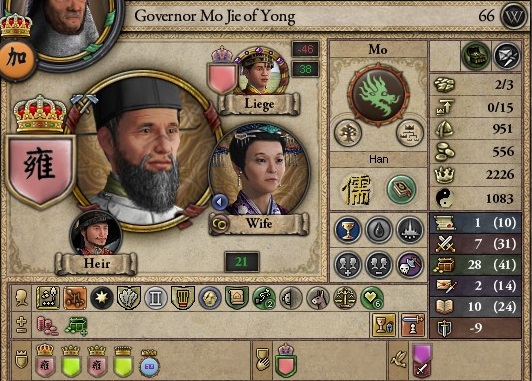
Many were surprised to see Emperor Wen bringing back the old official. As far as people knew, the Emperor was neither a barbarian lover like Mo Jie nor was he particularly caring of “the people”. More importantly, Mo Jie was the father-in-law of Yao Xiu, which led many believed that this made the old man an ally for the ambitious prince. But the relationship between brothers had been mended since Emperor Wen’s ascension to the imperial throne. Instead, the Emperor sought to gain on two fronts by appointing Mo Jie. First, it would show that he had the trust of his father’s old advisors and thus allow him to link his reign to the prestige of his father. Secondly, if even his brother’s father-in-law became one of his closest advisors, then it would show everyone that he was the best emperor possible, right?
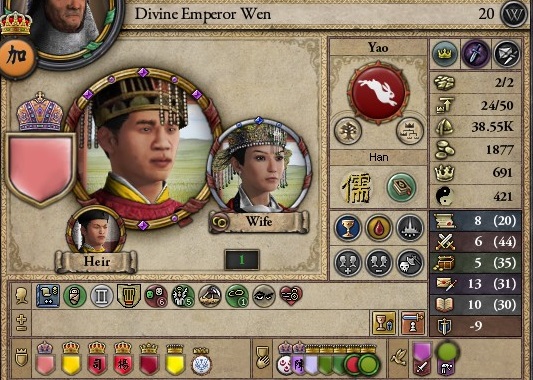
When Mo Jie went to the capital, he did not come alone. He brought his wife, his concubines, as well as his youngest daughter Mo Xinyue, the only one who was too young to be yet married. More controversially was the presence of his adopted son, the Di barbarian Mo Duo. Even Mo Jie was surprised by his willingness to return to Chang’an, considering how the others acted around him. But Mo Duo dearly wished to return to the luxury of the city life. As it turned out, the barbarian did not truly share his father’s love for the common people or diversity. Mo Jie had hoped to adopt a man who would uphold his ideas and continue his work once he was gone. Instead, Mo Duo was quickly adopting the Chinese lifestyle, enjoying all the opulence that came with it. He didn’t care about his barbarian origins or the common folk. If anything, he wanted to live the life of the rich elite, which was not what Mo Jie had hoped when he adopted the man.
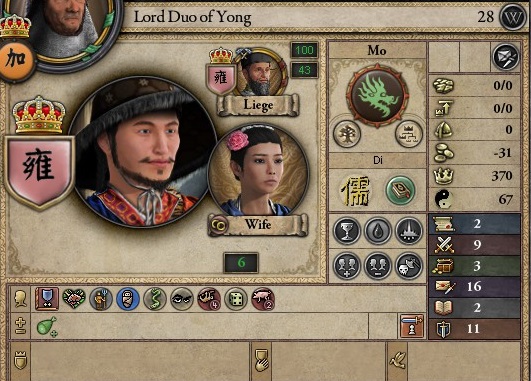
Mo Jie’s first task as Excellency of Works had been to help the various construction projects and economic works ordered by the Emperor, including sending gold to Liang Province for the construction of the late emperor’s mausoleum. In this, he proved invaluable help for the then Chancellor Jin Xuan. Jin Xuan found himself overwhelmed in his duties. Previously, he had only been assisting Emperor Anwu, who had a firm grip on the economy and the finances of the Liang Dynasty. But Emperor Wen could barely be called competent in that department, leaving the Chancellor suddenly submerged by a massive new workload. Mo Jie happily offered to help, including in affairs that did not directly connect to his duties. And for this, he gained the eternal respect of Jin Xuan. The Chancellor even admitted that he admired the old official for his devotion to the people of the Liang, no matter their origins.
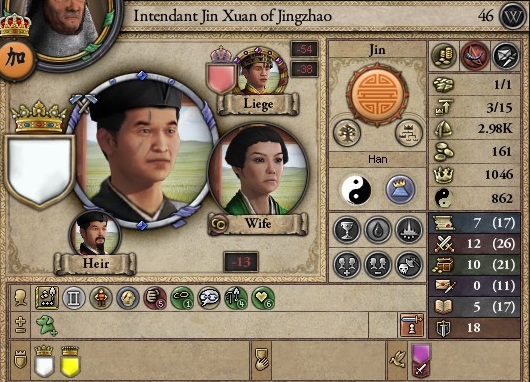
Sadly for Mo Jie, this new ally would soon be discarded by the Emperor, with who the Chancellor had a difficult relationship. In the struggle between Emperor Wen and his Grand Commandant Xu Chu (a struggle in which Mo Jie did not participate whatsoever), the Emperor appointed his father-in-law Xu Shu as first Minister of Justice in May and then as Chancellor of the Liang Dynasty in August. This meant that Mo Jie lost a powerful ally for his ideas of reforms. While he had a cordial relationship with Xu Shu, their priorities had always been different. Xu Shu’s priority was his loyalty to the Emperor, while Mo Jie always tried to guide his liege toward reforms for the people.
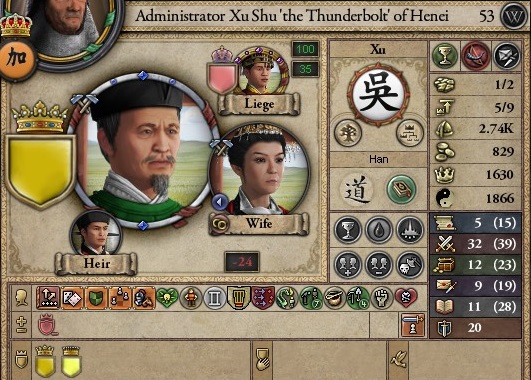
This came just as Mo Jie was working on his first great reform for the Liang Dynasty, which he presented at the end of 226. With the Emperor’s difficulties with monetary policies and the rapid expansion of the Liang Dynasty, a variety of coinage had began circulating. Coins from the Han, coins from the Liang, and now in some eastern part of the Dynasty there could even be some coins from the Chen. This obviously left some people confused, and more importantly, it led to some opportunists counterfeiting coins. This was a massive crime, as the right to mint coins was the sole prerogative of the central government. To eradicate this problem before it became too large, Mo Jie came with a simple solution: let them. More precisely, he wanted the provincial and local officials to gain the right to mint the imperial coins themselves, thus ending the imperial monopoly on coin fabrication.
Many provincial governors jumped at this opportunity to expand their powers. While Xu Chu didn’t care about this (as he had an even weaker grasp on finance than the Emperor), others quickly voiced their support for Mo Jie’s idea. Xuan Mei, the Governor of Bing Province and son of the infamous Xuan Su, was able to see the advantages that would come with such extension of his own power. Even better, this was something that his father had never been able to do, so Xuan Mei saw this as the next step toward improving the fortune of the Xuan Clan. When Mo Jie heard of this, he was happy to see that Xuan Mei was such a kind young man who cared about the people.
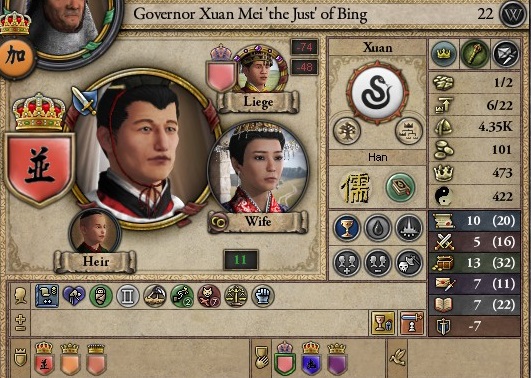
Another supporter of this reform was the Governor of Jing Province, the now 69 years old Wang You. Having first gained relevance after fleeing Jiang Xian’s seizure of Luoyang in 200, he became a loyal subordinate of Liu Siyuan, who quick started his career in the south. When Emperor Anwu seized these territories, he made Wang You the Governor of Jing Province, trying to pacify the former officers of Liu Siyuan and push them to submit to his authority. It worked, and while Wang You had been a forgettable governor so far, he had proven just good enough to never be removed from office. His only real flaw was how greedy he could be at times. When news came of Mo Jie’s idea, he of course jumped at the opportunity to see his pockets get filled.
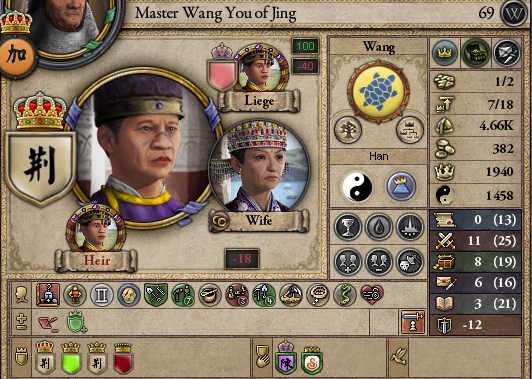
Now, Mo Jie didn’t think of this as a way to breed corruption or enrich powerful governors. He simply saw it as a tool to reduce the monopoly of the Liang central government and instead send it back to the provinces. For all his years serving the powerful Yao Shuren, Mo Jie had kept the values that had driven him since he joined the Liang Rebellion four decades ago. Even now, he still remembered how the central imperial government could turn into a tyrannical threat to the people on a whim. In order to avoid this happening to the Liang (or to at least place roadblocks to this tyranny), Mo Jie hoped to strengthen the power of the provinces, which had far more knowledges about the needs of the region and people that they ruled over. And being as kind as he was, he hoped (maybe even believed) that these measures, under the right governors, could lead to prosperous provinces with happy peasants.
Of course, not everyone agreed with these ideas. Some believed that the central government was the key to the prosperity of the Liang Dynasty. When asked if there was a precedent to this, the Grand Tutor awkwardly brought up the last time a similar policy had been implemented, which fatefully happened under Emperor Wen of Han (180-157 BC). At the time, the Han Dynasty included many vassal kings who were relatives of the emperor. Emperor Wen of Han decided, among his own reforms, to grant these kings minting rights in their kingdoms. The strengthening of the kings had eventually led to the Rebellion of the Seven States in 154 BC under the reign of Wen’s successor Emperor Jing of Han (157-141 BC). Needless to say, not a great precedent to support the reforms. When asked about his personal opinion on the subject, the Grand Tutor wisely balked and excused himself, fearful of speaking his mind too freely.
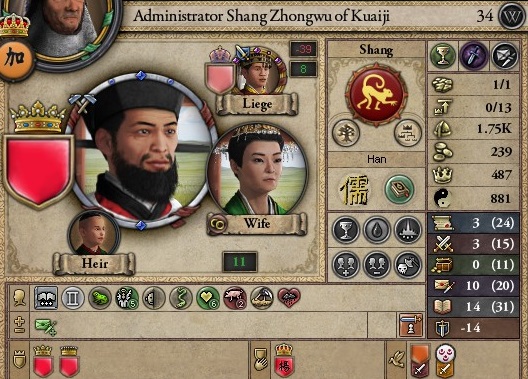
The Excellency of the Masses also proved an opponent of Mo Jie, in great part because the two men had never really liked each other on a personal level. Ren Duo was a cynical and at time cruel man, who was often stricken by bouts of depression and feelings of inferiority. Seeing the kind and oh so noble Mo Jie come back into the spotlight, and with the support of this new bratty emperor at that, was a frustrating annoyance for the envious old man. For his part, Mo Jie had never been comfortable with Ren Duo. The man’s time as Chief Clerk of Liang Province had been, in Mo Jie’s eyes, a disaster. While they didn’t despise themselves as much as Mo Jie and Duan Zuo, these two old officials were definitively on opposing sides.
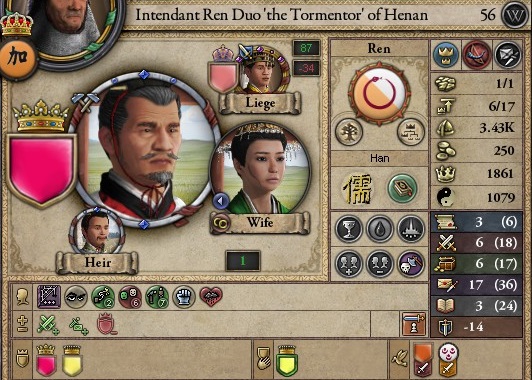
But more troubling for the old official was that one of his biggest critics proved to be his son-in-law Crown Prince Xiu. While they were bound by marriage, the oldest child of Emperor Anwu was very much his father’s son, believing that any erosion of imperial power was a threat to the dynasty. And it wasn’t like he had to go as far as Emperor Wen of Han to prove his point. In order to crush the Yellow Turban Rebellion in 184, the Han Dynasty had empowered its governors and local officials, leading to its collapse and its eventual replacement by the Liang. And now he was supposed to allow Mo Jie to do the same to the Liang Dynasty? It didn’t help that he had Duan Zuo as one of his advisors. Mo Jie’s old enemy had been pardoned by Emperor Wen once the young monarch took the throne and now served as an advisor to the Crown Prince, who just like his father chose to ignore the old scholar’s flaws due to his talent. And if Mo Jie wanted something, you could be sure that Duan Zuo would oppose it.
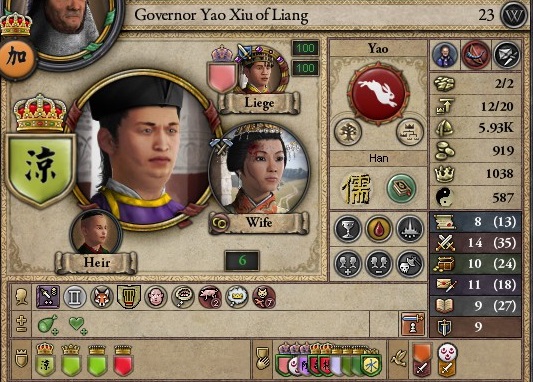
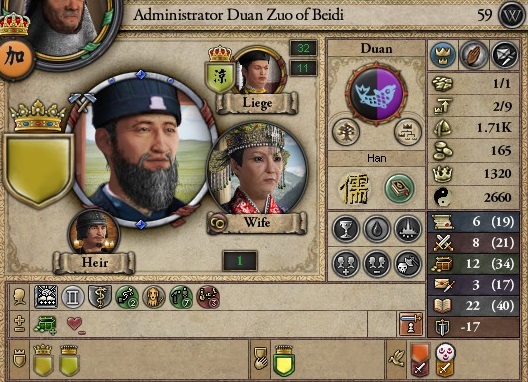
The reforms of Mo Jie were pushed to the background during the first half of 227 due to the various changes and issues that rocked the Dynasty. So many things required the attention of the court during this period: a change of empress, followed by a change of Chancellor. The overthrow of a governor. A governor trying to overthrow another governor… So many things that were going wrong, not helped by Emperor Wen’s meek responses to these crises. And to top it all off, Governor Wang You, who had been a big supporter of Mo Jie’s reforms, died off in March 227 at the age of 71. His successor, a young upstart named Qin Mao, had neither the skills nor the interest in getting involved in imperial politics, and clearly wished for nothing more than live a quiet life as a provincial governor without making too much efforts (and did not at all plan to become one of the greatest heroes of the Liang Dynasty).
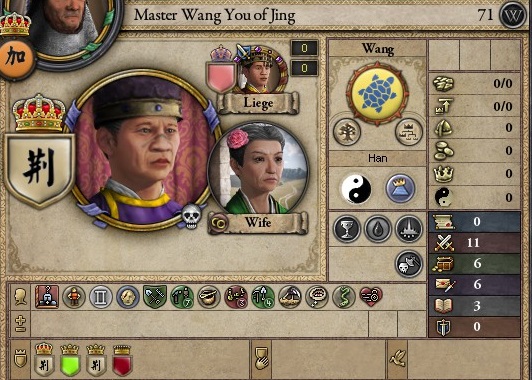
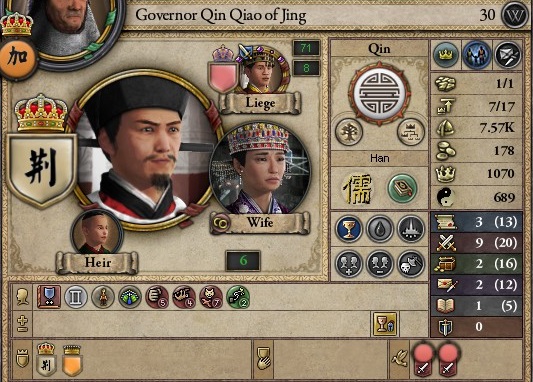
A real push for his reforms for a more fair and decentralized government thus had to wait until the autumn, and by then many at court were fiercely divided on the issue. Mo Jie had accidentally pushed a large part of the officialdom into one of the greatest crimes of ancient China, along with treason and witchcraft: factionalism. It was illegal to form groups, parties and factions to advance their own ideologies and policies, as all officials had to be united in their service of the emperor, at least on paper. Of course, it might be argued that for many officials this was more a question of their personal opinions of Mo Jie than political disagreements. And besides, it wasn’t like Emperor Wen was going to enforce his authority at court, not directly at least. He found it far more useful to play the various groups in order to regain some form of control over his affairs.
______________________________
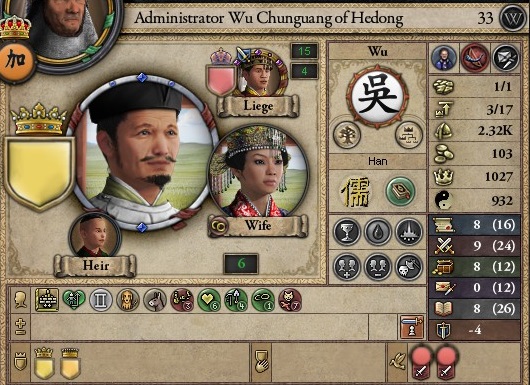
Wu Chunguang was striding toward to inner court in full confidence. He was a striking figure, after all, and he damn well knew it. He was quite tall, presenting an impressive figure in his robes. He heard some of the oldest officials that had somehow survived the last decades of chaos compared his stature to that of Jiang Xian, the evil Chancellor who doomed two emperors under his charges, Emperor Xian (189-201) and Emperor Mu (201-206). Clearly those were compliments kindly thrown at him, as he heard that Jiang Xian had been a virtuous man before he was corrupted by power. How kind of others to remind him to stay on the right path this way.
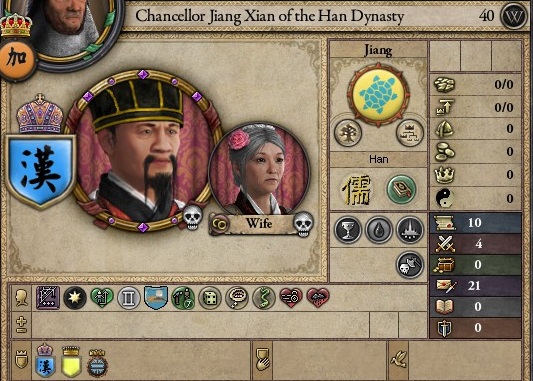
Still, as much as he enjoyed walking around under the beautiful sun, he needed to hasten his pace. The court was about to begin, and today was the big day. The Excellency of Works was about to debate for the last time his policy before the Son of Heaven made a decision. What wisdom of the Emperor to wait as long before settling on a n issue. This truly showed how wise the young monarch was, and how final his word would be when the decision was made. After all, his Imperial Majesty was not the sort of man to bend when pressured.
He was not the only one making his way to the court. As he approached the stairs of the palace, he joined the wave of officials arriving for the court audience. It might have been difficult to navigate had he not been a full head higher than everyone else. This also allowed him to spot the man trying to make his way toward him.
“Administrator Wu! Wait… Get out of the way! Excuse me… Passing through!” he told officials as he approached Wu Chunguang.
The man who was trying to reach him was one of his fellow comrades in their desires of reforms. Around the same age as he was, Jiao Gongzi had been another of the officials who rallied around the reformist ideas of the Excellency of Works. A just and kind man, with somewhat of a temper, he made a good enough impression to be appointed as administrator of Zuopingyi Commandery in August. Previously, he had been serving in the ministry of agriculture, where he excelled and even received a recommendation for his excellency Mo Jie himself. Wu Chunguang felt happy for his companion, knowing that he surely had a great career in front of him, though it surely helped that he was Empress Xu's maternal uncle.
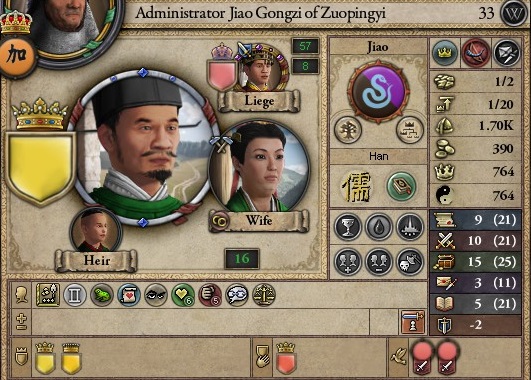
“Administrator Jiao.” Wu Chunguang welcomed him. “I see you are present as well.”
“Of course.” Jiao Gongzi answered with a smile. “His Excellency will need all the support available to pass his policies.”
“You mean the Emperor’s policy.” the tall man corrected him.
“Of course, of course.” Jiao Gongzi answered, though he rolled his eyes for some reason. Hopefully he wasn’t sick.
“I hope that his Excellency can make a good impression.” Wu Chunguang continued. “He is quite the speaker, but even he might need help to convince the Son of Heaven of the right path.”
“I just hope the impression he makes is the one he wishes for.” Jiao Gongzi remarked as they ascended the stairs.
The tall man could now see the entrance of the court, with the herd of officials removing their shoes before entering the sanctity of the imperial court. As the two men did the same, the two companions noticed the man standing in front of them. He had and old face, with what grey remained in his bushy beard slowly turning to white. His back was slightly curved, a sign of his advanced age. Even so, his eyes were full of energy, and his wrinkled face did not hesitate to present a warm smile to the two officials. They immediately saluted the old Excellency of Works, having failed to notice him up until now.
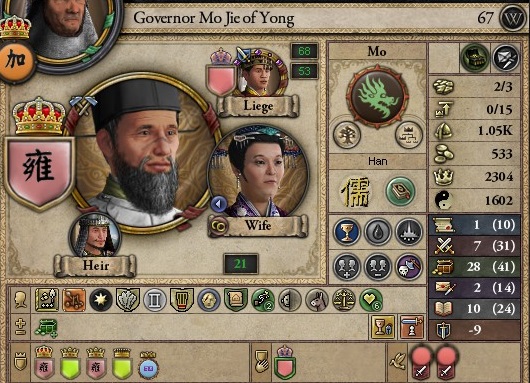
“Welcome your Excellency!” they both said.
Mo Jie simply nodded as he difficultly removed his shoes. Seeing this, Jiao Gongzi fell to his knees and kindly offered his help, which the old man gladly took.
“How are you feeling today your Excellency?” Jiao Gongzi asked him as he stood back up.
“Indeed!” Mo Jie answered with conviction, a finger raised at the sky.
Both officials laughed as a response, all the while looking at each other trying to figure out what the heck Mo Jie meant by this. They eventually decided to drop the issue and simply enter court with him. The officials within the court were all placed in two massive lines on each side, allowing a clear path to the Imperial Throne should someone be ordered to advance. And there he was, at the front of it all. The Son of Heaven in all his majesty and greatness. The Emperor was silent, looking over his court patiently as the rows were filled with officials, who quickly bowed to their heavenly monarch.
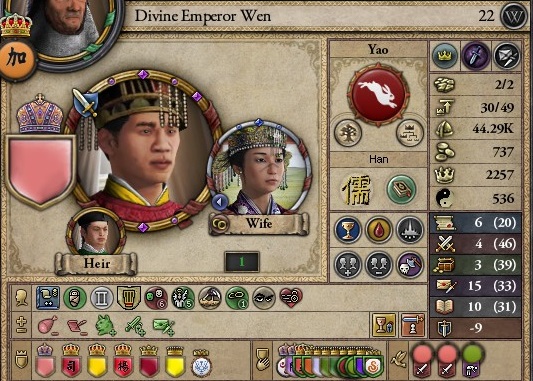
“Long live his Imperial Majesty! Long live the Liang!” they repeated.
The Emperor nodded before indicating the Chancellor to approach him, passing him a document to read in front of the court.
“His Imperial Majesty, in his heavenly wisdom, shall now hear the Excellency of Works Mo Jie on his suggested reforms for the Dynasty! After which, he shall allow the Excellency of the Masses and the Grand Tutor to present a rebuke of his Excellency’s argument! Thus he has decreed!”
The courtiers all applauded the Emperor’s decree for today’s court, after which those concerned stepped forward. Mo Jie was the first, quickly followed by the Grand Tutor Shang Zhongwu and the Excellency of the Masses Ren Duo.
“What do you have to say, your Excellency?” the Emperor asked Mo Jie. “Why should we follow your ideas.”
Mo Jie cleared his throat for a moment, making strange grumpy growls in the process. He then gave one last look to his allies in the crowd, with Wu Chunguang giving him a nod of support. Mo Jie stepped forward, looking straight at the Emperor before turning to the assembled officials.
“BIRDS! Birds flying inside old men, eating the fishes provided. Free of swords and apples. Tyranny of the willow! Look around you. Can’t you see? Freedom for the weoskdrws! Unity in the lands of the farms eating people! Can’t this future be marooned? Can’t this ship be cajoled? I see nothing! But I see fantastical beans! Beans of tyranny! That I ate! Miam miam! The future is ours, ladies of the woods! Because officials are good to the! And so it am joyful. The Emperor must goof to right! Luoyang is fright goody! I rest!”
Mo Jie then stepped aside, seemingly happy that he had convinced his audience. Meanwhile, Wu Chunguang, Jiao Gongzi and every other official were whispering between themselves, trying to figure out what the heck the Excellency of Works had just said.
“Grand Tutor?” the Emperor asked, seemingly unfazed. “Your rebuttal?”
The Grand Tutor started to baffle, unsure what words to use to answer this. Instead, it was Ren Duo who spoke for him.
“Your Radiant Highness! How can we respond to this nonsense?” the Excellency of the Masses protested. “This wasn’t even a proper speech! This was… nothing! It started with birds and ended with some nonsense about Luoyang! And what does ‘weoskdrws’ even mean?”
Mo Jie seemed confused at this rant from his political opponent. Whatever he wanted to say clearly did not translate into words correctly.
“His Excellency simply voiced a desire for a happy populace and a strong emperor.” Emperor Wen retorted.
“Is that what you heard?” Ren Duo inquired.
“I… hum… Yes?” the Emperor whimpered before regaining his composure. “I am still waiting for your rebuttal, Grand Tutor.”
Shang Zhongwu just looked around in silence, unwilling to face the humiliation that would come with his attempt to argument with Mo Jie. Seeing that the Grand Tutor would not speak, Emperor Wen turned to his Chancellor and said:
“Please, see with his Excellency of Works that the reforms are implemented.”
This of course caused an uproar among the courtiers. Some shouted in joy, while other demanded that the Emperor reconsider. Panicked by the current situation, Emperor Wen adjourned the court to make a quick exit out of this difficult situation, choosing to flee instead of standing up for his decision. As for the officials, they exited, either grumbling in their beard or joyfully celebrating. One ally of Mo Jie even offered to organize a banquet at his residence to celebrate. Meanwhile, the two companion simply stared at each other in confusion.
“Did we win?” Wu Chunguang asked.
“… seems like it.” Jiao Gongzi answered, still confused about what had happened in court.
Attachments
- 5
- 1



